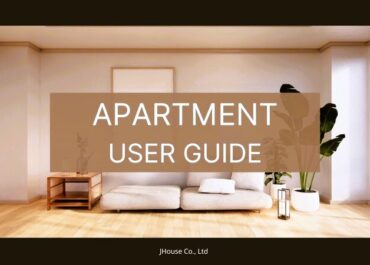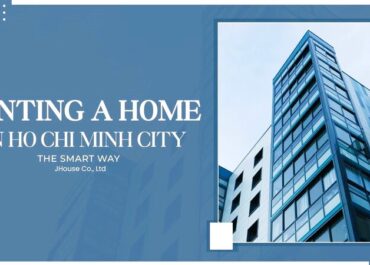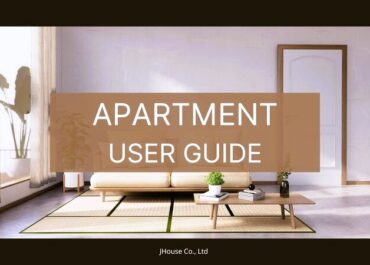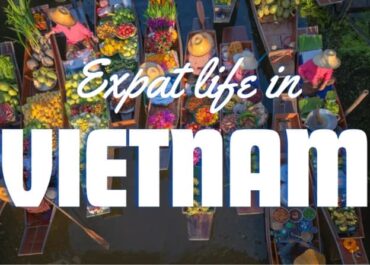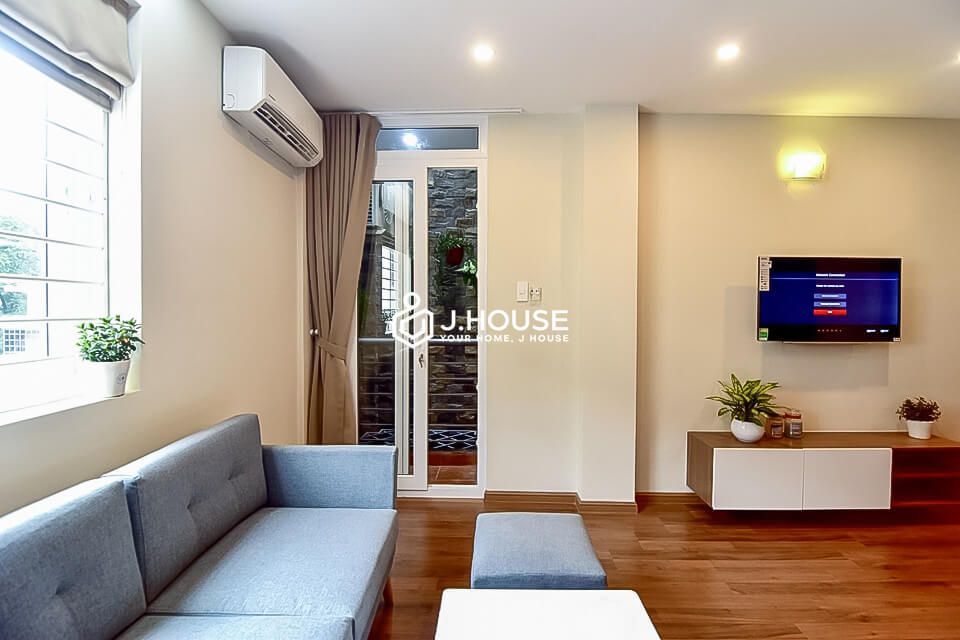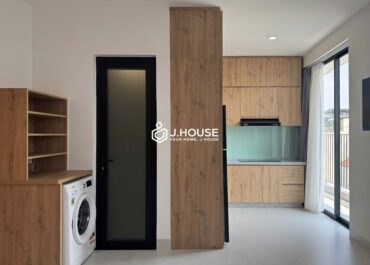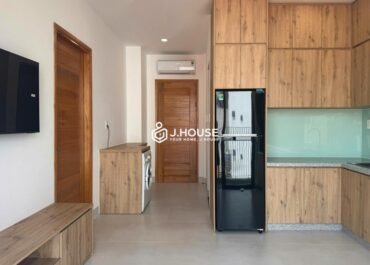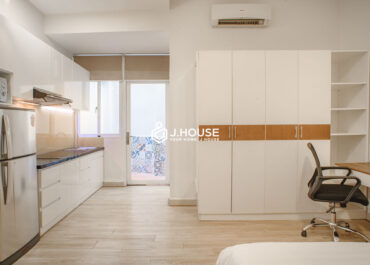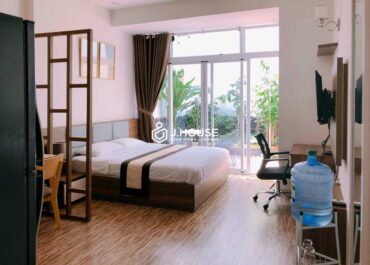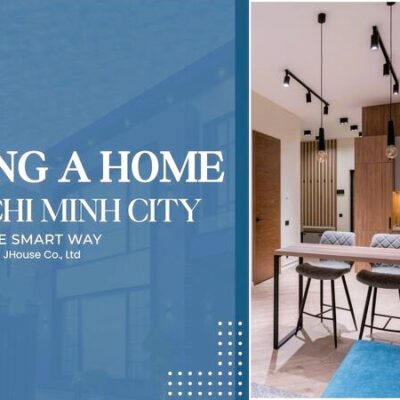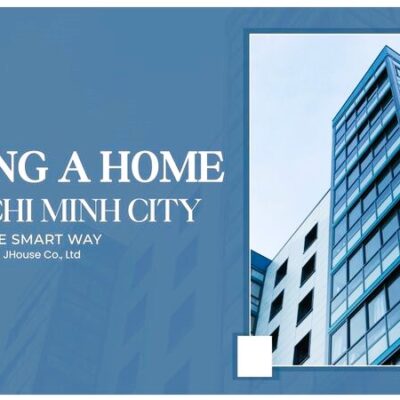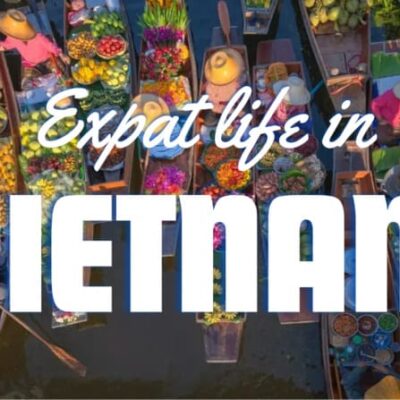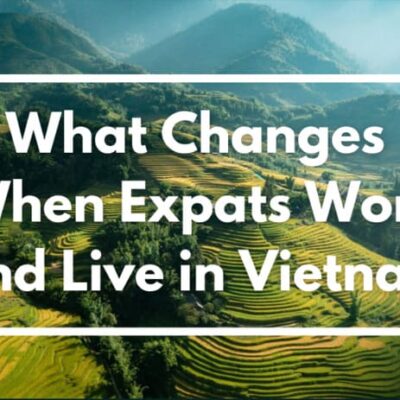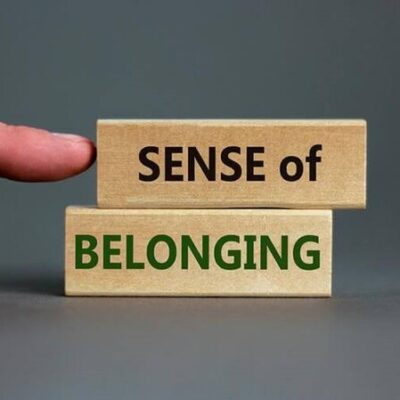Latest Properties
Budget & Finance
Apartment User Guide (Part 2)
Apartment User Guide - Living Comfortably & Safely with JHouse
5. SAFETY & FIRE PREVENTION
Fire safety is a shared responsibility. Always follow the building’s official fire safety regulations and instructions.Key safety information
Make sure you are familiar with the location of:
- Fire extinguishers
- Emergency exits and evacuation routes
Knowing these locations in advance can save valuable time in an emergency.
⚠️ What to do if there is a fire or smoke
- Stay calm and prioritize personal safety
- Alert people nearby if safe to do so
- Follow the building’s evacuation procedures
- Use stairs, not elevators
Leave the building as directed by building management or emergency services
🚫 What not to do
- Do not block emergency exits or corridors
- Do not use elevators during a fire
- Do not attempt to fight a fire unless it is small and you have been trained to do so
📞 When to notify and who to contact
- Contact emergency services and building management immediately in case of fire or smoke
- After you have ensured your personal safety, you may contact JHouse if:
- You need support in coordination
- You require assistance in communication or follow-up
6. SAFETY DURING HEAVY RAIN & STORMS
Severe weather can affect safety, electricity, and water systems. Always prioritize personal safety during storms.
What usually happens
- Strong winds
- Localized flooding
- Unstable or flickering electricity
⚠️ What to do now
- Close all windows, doors, and balcony areas
- Secure or bring inside any loose items on balconies
- Unplug non-essential electrical devices if power is unstable
- Stay informed through building management announcements, if available
🚫 What not to do
- Do not stand near glass windows or balcony doors
- Do not touch electrical switches or outlets with wet hands
- Do not attempt to fix electrical issues in wet conditions
📞 When to notify and who to contact
- Notify the landlord or building management if storm-related damage occurs
- Contact emergency services if there is immediate danger
- You may contact JHouse after ensuring personal safety if:
- You need support in coordination
- Communication or follow-up is unclear
7. BUILDING / NEIGHBORHOOD RULES
Following building and neighborhood rules helps ensure a comfortable and respectful living environment for everyone.
Key rules to be aware of
While specific rules may vary by property, common regulations usually relate to:
- Quiet hours: Please respect designated quiet times, especially in the evening and early morning.
- Pets: Pet policies differ between buildings. Always confirm what is permitted before bringing or keeping a pet.
- Parking: Use only assigned or approved parking areas. Visitor parking rules may apply.
- Visitors: Guest registration, access hours, and overnight stays may be regulated by the building or landlord.
Important notice
Official building rules and regulations always take priority. If there is any difference between this guide and the building’s official rules, the official rules shall apply.
8. CLEANING & FURNITURE CARE
Proper cleaning and basic care help maintain the condition of the apartment and its furnishings.
Basic care guidelines
- Wooden floors: Clean with a dry or slightly damp mop. Wipe spills immediately to avoid water damage.
- Sofas and upholstered furniture: Use appropriate fabric cleaners if provided. Regular light cleaning helps prevent stains and odors.
- Electrical appliances: Keep appliances clean and dry. Ensure they are turned off and unplugged before cleaning.
🚫 What not to do
- Do not use strong or abrasive chemicals
- Do not pour water directly onto floors or furniture
- Do not repair or modify furniture or appliances on your own
📞 When to notify and who to contact
- Notify the landlord or building management if damage occurs
- Contact JHouse if you need support in coordination or communication
9. THINGS YOU SHOULD NOT DO
To ensure safety and avoid unnecessary costs or disputes, please avoid the following actions during your stay.
🚫 Actions to avoid
- Drilling, cutting, or installing fixtures without approval. This may damage walls, wiring, or plumbing.
- Changing the apartment layout or structure. Structural changes can affect building safety and violate regulations.
- Allowing long-term occupants or subtenants without notice. All long-term stays must be reported and approved as required.
Why this matters
These actions may result in:
- Safety risks to you and others
- Repair costs or compensation claims
- Delays in deposit return or administrative issues
📞 When to notify and who to contact
- Notify the landlord or building management before making any changes
- Contact JHouse if:
- You are unsure whether an action is permitted
- You need support in coordination
10. MOVE-IN & MOVE-OUT GUIDELINES
Clear check-in and check-out procedures help protect both tenants and property owners and ensure a smooth living experience.
🏠 When moving in
- Inspect the apartment carefully: Check furniture, appliances, walls, floors, and utilities.
- Record any existing issues: Take photos or notes of scratches, stains, or technical concerns and report them early.
- Confirm handover items: Keys, access cards, remotes, and basic instructions should be received and verified.
🚚 When moving out
- Clean the apartment: The unit should be returned in a reasonably clean condition, excluding normal wear and tear.
- Return all keys and access items: Lost items may result in replacement costs.
- Support the deposit return process: The deposit will be reviewed based on:
- Apartment condition
- Outstanding bills (if applicable)
- Repair or cleaning costs, if any
📞 When to notify and who to contact
- Inform the landlord or building management about your move-out schedule as required
- Contact JHouse if:
- The move-in or move-out process is unclear
- Issues arise during inspection or handover
- You need coordination or communication support
11. CONTACTS & RESPONSIBILITIES
Clear role definition
1. Tenant- Use the apartment properly and in accordance with house rules
- Notify relevant parties promptly when issues or changes occur
- Cooperate with the landlord or building management in technical matters
- Responsible for the apartment’s legal and technical condition
- Approve and arrange repairs, maintenance, and technical services
- Coordinate with building management and service providers when required
- Support communication between the tenant, the landlord, and building management
- Assist with coordination and follow-up on reported issues
- Provide guidance when communication is unclear, or support is needed
⚠️ Note:
JHouse acts as a coordination and support partner and does not replace emergency services, technical contractors, or official authorities.
12. FREQUENTLY ASKED QUESTIONS (FAQ)
Do I have to pay for repairs myself?
- Repair responsibility depends on the cause of the issue and the lease agreement.
- Always notify the landlord or building management first. JHouse can support coordination if clarification is needed.
How quickly will support be provided?
- Response time depends on the nature of the issue, the availability of service providers, and landlord approval.
- Urgent matters are prioritized, but timelines cannot be guaranteed.
What is considered an emergency?
- Situations involving immediate risk to personal safety, such as fire, gas leaks, major water leaks, or electrical hazards, are considered emergencies.
- In such cases, prioritize safety and contact emergency services or building management immediately.
Should I contact JHouse for every issue?
- Not necessarily.
- You should contact the landlord or building management first for technical or building-related issues.
- Contact JHouse if you are unsure who to notify, if communication is unclear, or if coordination support is needed.
Can I fix small issues myself?
- Tenants should not dismantle, modify, or repair technical systems or appliances without approval.
- Unauthorized repairs may create safety risks or affect liability.
What if I am unsure what to do?
- If you are uncertain about the seriousness of an issue or the correct next step, seek guidance before taking action.
- JHouse can help clarify the process and support communication.
13. JHOUSE CARE – WHEN YOU NEED, WE’RE HERE
When to contact JHouse
- When you are unsure who to notify first
- When communication with the landlord or building management is unclear
- When an issue requires coordination or follow-up support
How JHouse supports you
- Assisting communication between the tenant, the landlord, and the building management
- Supporting coordination when needed
- Helping clarify processes so issues can be handled appropriately
Working hours & contact channels
- JHouse support is available during standard working hours
- Contact channels are provided separately at move-in
- Emergency situations should always be directed to local emergency services or building management first
Living well starts with feeling supported. This guide is here to help you navigate daily living with clarity and confidence.
When questions arise or situations feel uncertain, knowing what to do and who to contact makes all the difference.
JHouse is here to support coordination and communication, so your living experience can remain clear, safe, and well managed.
We wish you comfort, ease, and a sense of belonging in your new home.
Read Part 1 hereApartment User Guide (Part 1)
Apartment User Guide - Living Comfortably & Safely with JHouse
ABOUT THIS GUIDE
Welcome
Welcome to your new home.
This Apartment User Guide is prepared by JHouse to support you in settling in comfortably and safely. It brings together practical guidance for everyday living and common situations you may encounter while staying in your apartment.
What this guide is for
This guide helps you:
- Use the apartment correctly and safely
- Know what to do first when common issues happen
- Understand when to contact JHouse for support
What this guide does NOT replace
This guide is for general reference only. It does not replace:
- Official building rules or regulations
- Equipment manuals from manufacturers
- Emergency services (electricity, water, medical, fire)
In urgent situations, always prioritize personal safety and contact emergency services first.
How to use this guide
You do not need to read this guide from beginning to end.
Each section is designed so you can:
- Open the right page
- Take the right action
Look for these headings throughout the guide:
- ⚠️ What to do now
- 🚫 What not to do
- 📞 When to contact JHouse
These markers are there to help you make clear decisions, avoid unnecessary risks, and know when professional support is needed.
Note: This guide provides general usage and safety guidance. It does not replace building regulations, official manuals, or emergency instructions.
1. ADMINISTRATIVE PROCEDURES & TEMPORARY RESIDENCE
What usually happens
Many tenants are unsure:
- Whether temporary residence registration is required
- Who is responsible for the registration process
This often leads to concerns about possible administrative fines.
⚠️ What to do now
- Provide the required personal information and documents to JHouse as requested
- Inform JHouse as soon as you move in
JHouse will coordinate with the landlord and relevant parties to support the registration process where applicable.
🚫 What not to do
- Do not ignore temporary residence registration requirements
- Do not submit incorrect or incomplete information
📞 When to contact JHouse
Contact JHouse immediately if:
- You have just moved in
- There is any change in occupants (additional residents, guests staying long-term, or someone moving out)
Prompt communication helps avoid unnecessary issues and ensures compliance with local regulations.
2. BASIC APARTMENT USAGE
This section provides general guidance for using essential utilities and appliances in your apartment. Specific layouts and equipment may vary between properties.
2.1. Electricity – Water – Gas – Water Heater
What usually happens
- Tenants are unsure where the main switch or shut-off valves are located
- Uncertainty about how to turn systems on or off safely, especially during emergencies
⚠️ What to do now
- Take note of the location of:
- The main electricity switch
- Water shut-off valves
- Gas valve (if applicable)
- Use appliances and utilities only as intended
- Turn off electricity, water, or gas if you notice leaks, unusual smells, or abnormal operation
🚫 What not to do
- Do not overload electrical outlets
- Do not force switches or valves
- Do not adjust or modify technical settings without guidance
2.2. Air Conditioner – Washing Machine – Stove – Cooker Hood
What usually happens
- Appliances do not work as expected
- Air conditioners are not cooling properly
- Washing machines stop mid-cycle or display error signals
⚠️ What to do now
- Use appliances according to basic operating instructions
- Keep filters and vents clear and clean
- Stop using the appliance if you notice:
- Unusual noises
- Strong odors
- Error indicators
🚫 What not to do
- Do not dismantle or repair appliances on your own
- Do not change wiring, plumbing, or gas connections
- Do not continue using an appliance that appears unsafe
📞 When to notify and who to contact
- Notify the landlord or building management first if a technical or safety issue occurs
- You should contact JHouse if:
- You are unsure who to notify first
- The issue is not being resolved, or communication is unclear
- You need support in coordination
Important notice
Tenants must not dismantle, modify, or repair any technical systems or appliances without approval.
All technical inspections and repairs should be handled by the landlord, building management, or authorized service providers, with JHouse supporting coordination when needed.
3. INTERNET – TV – ROUTER
What usually happens
- The internet connection is lost
- Wi-Fi signal is weak or unstable
- Tenants are unsure how to reset the modem or router
⚠️ What to do now
- Check that the power supply is on
- Ensure cables are properly connected
- Restart the modem or router according to the basic instructions provided
🚫 What not to do
- Do not reset the modem or router if you are unsure
- Do not change technical settings or network configurations
- Do not disconnect cables unnecessarily
📞 When to notify and who to contact
- Notify the internet service provider, landlord, or building management as applicable if the issue persists
- You should contact JHouse if:
- You are unsure who to notify first
- The issue is not being resolved, or communication is unclear
- You need support in coordination
4. COMMON ISSUES & TROUBLESHOOTING
If a situation feels unsafe, prioritize personal safety first. Do not attempt to fix technical problems beyond basic, safe actions.
4.1. Power Outage
Signs
- No electricity in part or all of the apartment
- Lights or appliances suddenly stop working
⚠️ What to do now
- Check whether the outage affects only your unit or the whole building
- Check the main electricity switch or circuit breaker
- Turn off sensitive appliances if the power is unstable
🚫 What not to do
- Do not force switches or breakers
- Do not handle exposed wiring
📞 When to notify and who to contact
- Notify the building management or landlord first
- Contact JHouse if you are unsure who to notify, or if the issue is not being resolved
4.2. Water Leakage
Signs
- Water is pooling on the floor
- Damp walls, ceilings, or dripping sounds
⚠️ What to do now
- Turn off the water shut-off valve if accessible
- Move personal items away from the affected area
🚫 What not to do
- Do not ignore ongoing leaks
- Do not dismantle plumbing fixtures
📞 When to notify and who to contact
- Notify the landlord or building management immediately
- Contact JHouse for coordination if communication is unclear or delayed
4.3. Air Conditioner Not Cooling
Signs
- The air conditioner is running but not cooling
- Weak airflow or unusual noises
⚠️ What to do now
- Check that doors and windows are closed
- Clean visible filters if instructed and safe to do so
- Turn off the unit if abnormal noises occur
🚫 What not to do
- Do not dismantle or open the unit
- Do not continue using the unit if it appears unsafe
📞 When to notify and who to contact
- Notify the landlord or building management of a technical inspection
- Contact JHouse if coordination support is needed
4.4. Clogged Toilet
Signs
- Slow drainage
- Water rises when flushed
⚠️ What to do now
- Stop flushing immediately
- Use basic tools provided, if available and safe
🚫 What not to do
- Do not force flushing
- Do not use strong chemicals
📞 When to notify and who to contact
- Notify the landlord or building management
- Contact JHouse if the issue persists or responsibilities are unclear
4.5. Gas Smell or Unusual Odors
Signs
- Smell of gas
- Strong or unfamiliar odors
⚠️ What to do now
- Turn off the gas valve immediately (if safe to do so)
- Open windows and doors
- Leave the area if the smell is strong
🚫 What not to do
- Do not use electrical switches or open flames
- Do not stay inside if you feel unsafe
📞 When to notify and who to contact
- Contact emergency services or the gas provider immediately if there is danger
- Notify the landlord or building management
- Contact JHouse afterward for coordination and support (if any)
Safety principle
When there is any risk to personal safety, always prioritize people over property.
Continue to Part 2Renting A Home In HCMC – The Smart Way (Part 2)
How to Rent a Home in Ho Chi Minh City – The Smart Way
CHAPTER 4 - Working Effectively with Real Estate Agents in Vietnam
Understanding the Real Role of an Agent
For many expats, working with a real estate agent in Vietnam can feel unfamiliar, particularly compared to more regulated markets. Most misunderstandings arise not from bad intent, but from unclear expectations at the outset.
Agents in Vietnam operate in varied ways. They may work independently or within small networks, represent landlords, tenants, or both, and differ widely in experience and accountability. Understanding this landscape allows tenants to engage with clarity rather than suspicion.
At their best, agents do more than arrange viewings. They help interpret pricing, manage expectations between parties, and guide tenants through the process—from shortlisting to contract review and handover. Much of JHouse’s work sits in this space: helping expats understand how the rental process actually unfolds in practice, not just how it appears on paper.
Problems tend to surface when speed is prioritized over suitability, or persuasion over accuracy. Common warning signs include pressure to decide quickly, vague explanations around deposits or contracts, and assumptions presented as facts. These signals do not automatically indicate bad intent, but they often point to misalignment that can lead to issues later.
How Tenants Can Collaborate Effectively
Working well with an agent is a two-way process. Tenants benefit from clarifying early who the agent represents, what support is included, how communication will work, and when fees apply. This shared understanding reduces assumptions on both sides.
Clear input from tenants is equally important. Being specific about budget limits, non-negotiable requirements, flexibility points, and timelines helps agents filter options accurately and avoid wasted viewings.
At the same time, tenants should remain open to the local context. Market dynamics in HCMC may challenge initial expectations around pricing, availability, or contract terms. Productive relationships are built on transparency over persuasion, documentation over verbal assurances, and process over urgency. When agents are treated as navigators within a complex system—and tenants engage with structure—decisions become more balanced and confident.
The next chapter turns inward, focusing on tenant preparation as the final foundation for renting with clarity in Ho Chi Minh City.
CHAPTER 5 - Contracts, Deposits, Payments & Legal Basics
This chapter covers the parts of renting in Ho Chi Minh City that tend to create the most anxiety for expats. Contracts, deposits, payments, and legal procedures often feel unfamiliar—not because they are complex, but because expectations from other markets do not always apply here. Most issues arise from overlooked details rather than legal disputes.
Deposits and Payment Terms
Deposits are standard in residential rentals. They usually equal one to two months’ rent and are paid after key terms are agreed but before contract signing. While the structure is common, the conditions attached to a deposit matter more than the amount itself.
Before transferring funds, tenants should clearly understand when a deposit is refundable or forfeited, how it is handled if terms change, and whether it is applied separately or offset later. In JHouse’s experience, confusion rarely comes from the deposit itself—but from unclear timelines and assumptions around conditions.
Rental payments are typically made monthly or quarterly in advance and transferred via bank. Utilities and building fees are usually paid separately. Clarifying who pays what and how prevents friction once the lease begins.
Contract Duration and Early Termination
Most expat leases are 12 months, with shorter terms less common and often priced higher. Renewal expectations should be documented clearly rather than assumed.
Early termination clauses require special attention. Many contracts allow early exit only with financial consequences, often involving partial or full deposit loss. If flexibility matters due to work contracts or personal plans, it should be addressed before signing—not treated as an informal understanding.
English contracts are common, but the Vietnamese version often prevails legally. This does not require legal expertise, but it does require that key clauses are explained clearly and discrepancies resolved before signing. Comfort with the written terms is more important than speed.
Registration and Legal Considerations
Foreign tenants must be registered at their residence. This is usually handled by the landlord or building management, using the lease, passport, and visa information. Registration supports visa extensions and other administrative needs, so tenants should confirm who is responsible and when it will be completed.
Beyond this, tenants should ensure names and details are correct on contracts, payment records are kept, and any special agreements are written, not verbal.
Understanding What Matters
Renting in Ho Chi Minh City does not require legal mastery—only clarity. Knowing which terms are standard, which are negotiable, and which require attention allows tenants to move forward confidently. With the right guidance and context, these steps become manageable rather than intimidating. The next chapter brings these insights together into practical checkpoints for renting with confidence.
CHAPTER 6 - Renting with Confidence Is a Journey
Renting a home in Ho Chi Minh City is rarely a single decision. It is a series of choices, adjustments, and moments of learning—each shaping how stable and grounded daily life will feel over time.
Throughout this guide, one principle remains consistent: confidence does not come from speed or instinct alone. It comes from understanding how the market works, recognizing where risks typically appear, and moving through the process with structure rather than urgency. When tenants know what to expect, pressure eases—and decisions tend to hold up long after move-in day.
The journey begins with clarity. Defining realistic needs, understanding local pricing dynamics, and approaching agents with aligned expectations set a solid foundation. From there, process matters. Viewing properties methodically, documenting agreements, reviewing contracts carefully, and managing deposits with awareness are not signs of hesitation—they are signs of readiness.
Context is equally important. Renting in Vietnam is shaped not only by written terms, but by communication styles, local practices, and relationship dynamics. Tenants who understand these nuances are better equipped to navigate uncertainty and avoid unnecessary conflict.
Just as importantly, no tenant is expected to navigate this journey alone. The rental market is complex, timelines are often compressed, and small missteps may surface much later. In this environment, informed professional support helps interpret local practices, maintain process discipline, and provide perspective—often making the difference between reacting quickly and deciding well. This is where working with a capable, experienced rental partner begins to matter.
Renting well, then, is not about finding a perfect property. It is about making informed decisions that support the life you are building in Vietnam—decisions that remain sound not only on move-in day, but over time. Once this mindset is established, the focus naturally shifts from individual choices to the journey itself—and how JHouse supports that journey with greater clarity and confidence, explored in the next chapter.
CHAPTER 7 - Your Rental Journey with JHouse
Every rental journey in Ho Chi Minh City unfolds differently. Some move quickly, others take unexpected turns—but most include moments where information feels incomplete, and decisions feel heavier than expected. In these moments, having a steady reference point often matters more than having more choices.
JHouse supports tenants by staying close to the process without taking control of it. Before viewings begin, this means helping tenants slow down just enough to clarify priorities—what truly matters, what is flexible, and what may need recalibration based on local realities. This early alignment helps ensure intention is not replaced by momentum.
As the search progresses, JHouse works alongside tenants to make sense of what can feel fragmented on the ground. Pricing differences, agent advice, and contract language rarely appear in one clear picture. Rather than adding noise, JHouse helps filter information—highlighting what is standard, what deserves attention, and where assumptions from other markets may not apply.
Critical moments tend to arrive quietly: a deposit request, a contract clause, a compressed timeline. Here, structure becomes the anchor. JHouse supports tenants by encouraging documentation, clarifying expectations, and helping identify misalignment before commitments are made—not to delay decisions, but to ensure they are made with awareness.
After move-in, the journey continues. Questions around maintenance, communication, or evolving arrangements often surface over time. JHouse remains present as a coordination and support partner, helping tenants navigate these situations calmly and constructively.
Throughout the journey, the goal remains consistent: not to eliminate uncertainty, but to manage it thoughtfully. When tenants feel informed and supported, renting becomes less about reacting—and more about settling in with confidence.
This guide reflects how JHouse works alongside expats every day: not directing outcomes, but supporting clearer decisions at each stage. May it serve as a steady reference as renting becomes less about uncertainty—and more about creating a home that supports the life you are building in Vietnam.
End
Read Part 1 hereRenting A Home In HCMC – The Smart Way (Part 1)
How to Rent a Home in Ho Chi Minh City – The Smart Way
About This Guide
Renting a home in Ho Chi Minh City is often more complex than it first appears. While options are plentiful, challenges commonly arise from local practices, communication gaps, and assumptions carried over from other markets.
This guide helps expats navigate those realities with greater clarity and confidence, with JHouse serving as a quiet reference point throughout the journey. Drawing on real rental experiences, it focuses on common patterns, decision points, and risks tenants often encounter.
What This Guide Offers
This guide is designed to help tenants:
- Understand how renting works in practice
- Recognize where misunderstandings and risks commonly appear
- Move through the process with structure rather than urgency
It does not require prior local knowledge, nor does it encourage blind adaptation. Instead, it bridges international expectations with local context—drawing on perspectives developed through hands-on support work by JHouse.
How to Use This Guide
The chapters follow the typical rental journey—from preparation, property search, work with agent to contracts. Readers may move through the guide sequentially or return to specific sections as questions arise.
There are no perfect rentals—only informed decisions and considered trade-offs. This guide is intended to support those decisions before commitments are made.
A Note on Perspective
The perspective throughout this guide reflects JHouse’s practical experience supporting expats renting in Ho Chi Minh City. The aim is not to direct choices, but to provide context, structure, and realistic expectations.
Renting with confidence is not a single decision, but a process—and this guide is meant to support that process clearly, calmly, and without pressure.
CHAPTER 1 - Understanding the HCMC Rental Market: Context Before Choices
Renting a home in Ho Chi Minh City may seem straightforward at first, with abundant listings and quick responses. Yet many challenges surface only after the process begins.
Most issues arise from how agreements are communicated and finalized—often after a deposit is paid. Early market understanding helps replace assumptions with clarity, a pattern JHouse frequently observes while supporting expats throughout their rental journey in HCMC.
A Market That Is Diverse—but Uneven
Ho Chi Minh City offers one of Southeast Asia’s most diverse rental markets, from compact city apartments to spacious homes in quieter districts. However, diversity does not mean consistency.
Unlike more standardized markets, rentals in HCMC remain uneven. Units within the same building—or under the same landlord—may differ significantly in price, condition, and terms. For expats, the challenge is rarely lack of options, but difficulty making fair comparisons. Recognizing this unevenness is the first step toward informed decisions.
Common Property Types Expats Rent
Most expats in HCMC rent within a few key categories, each with its own trade-offs.
Apartments vary widely in age, management quality, and maintenance standards, even within the same project. They are often chosen for convenience and central locations.
Serviced Apartments offer furnished units and include services, making them suitable for short- to mid-term stays, typically at a higher monthly cost.
Villas and Townhouses mare ore common in outer districts, appeal to families seeking space and privacy, but often require closer attention to maintenance responsibilities and contract terms.
Choosing between these options depends not only on preference but also on lifestyle, length of stay, and comfort with local rental practices.
Location, Pricing, and Market Logic
While location is often the first priority, rental value in HCMC is shaped by more than geography. Pricing reflects building age, unit condition, landlord flexibility, and timing. As a result, two similar units in the same building may be priced differently due to renovation history or leasing urgency.
Pricing is driven by negotiation rather than fixed models. Prices may shift based on seasonality, lease length, payment terms, or tenant profile. For expats relying on assumptions from other markets, this flexibility can feel unpredictable. A local reference point helps interpret these signals and reduces friction later.
Online Listings vs. Market Reality
Online platforms are useful entry points, but they rarely reflect the full market. Listings may be outdated, prices may no longer apply, or units may be advertised for reference rather than immediate lease. This gap often frustrates new arrivals who expect listings to function as firm offers.
The Value of Local Market Context
Because the market is fragmented, local insight plays a critical role. In practice, JHouse often supports expats by narrowing choices rather than expanding them—helping tenants focus on options that are realistic, available, and aligned with their priorities.
The HCMC rental market rewards preparation over speed. Understanding the context comes first; navigating it well requires structure and intention. The next chapter moves from market context to practical execution.
CHAPTER 2 - The Standard Rental Process in Ho Chi Minh City (Step by Step)
Renting in Ho Chi Minh City works best with a clear, structured process. Most issues arise not from one bad decision, but from rushed timelines or skipped steps.
Understanding the process helps tenants stay grounded, objective, and in control throughout the journey—a perspective JHouse consistently emphasizes when supporting expats at different stages of renting.
Step 1: Defining Realistic Needs
Before viewing any property, the most important work happens off-market. Many expats begin with broad preferences, but clarity matters more than aspiration. Defining realistic needs early reduces emotional decisions later.
Key areas to clarify include budget range, preferred districts, property type and size, length of stay, furnishing needs, and move-in timeline.
Common risks at this stage:
- Setting expectations based on online listings alone
- Underestimating commute times or neighborhood dynamics
- Ignoring lease length or exit flexibility
At this point, JHouse often helps tenants translate priorities into realistic market options—highlighting trade-offs early and avoiding viewings that do not align with actual constraints.
Step 2: Working with an Agent
Most rentals in HCMC involve agents, but their role is not always clearly defined unless expectations are aligned upfront.
A healthy working relationship clarifies who the agent represents, the scope of support, the communication style, and fee structure.
Common risks at this stage:
- Assuming full representation without confirmation
- Working with multiple agents without coordination
- Receiving inconsistent or incomplete information
A professional agent acts as a coordinator, translator, and risk filter—helping tenants navigate conversations, verify information, and maintain process discipline. This is where guidance from teams like JHouse often prevents confusion before it compounds.
Step 3: Property Viewings and Comparisons
Viewings are where emotion tends to enter decision-making. Beyond layout and furnishings, tenants should assess actual condition versus photos, noise levels, building management, maintenance responsibilities, and inventory accuracy.
Common risks at this stage:
- Falling in love with a unit too quickly
- Comparing properties without consistent criteria
- Overlooking “non-visible” issues
An experienced agent helps maintain objectivity, flag inconsistencies, and ensure essential questions are addressed before moving forward.
Step 4: Negotiation and Term Alignment
In HCMC, negotiation goes beyond price. Lease length, payment schedules, furnishing adjustments, maintenance responsibilities, and early termination terms often matter more long-term.
Common risks at this stage:
- Focusing only on price
- Relying on verbal assurances
- Assuming flexibility without written confirmation
Structured negotiation—something JHouse consistently supports—helps ensure agreed terms are clearly documented and understood by all parties.
Step 5: Deposits and Contract Review
Deposits are usually required before contracts are finalized and represent a critical control point. They may be non-refundable under certain conditions and tied to specific timelines.
Common risks at this stage:
- Paying a deposit before all terms are clear
- Unclear refund conditions
- Discrepancies between English and Vietnamese contract versions.
Clear explanations, plain-language walkthroughs, and confirmation of written terms help tenants commit with confidence rather than uncertainty.
Step 6: Handover and Move-In
Move-in is not the end of the process—it is the final verification step. Utility readings, inventory condition, existing wear, and building rules should be confirmed and documented.
Skipping this step often leads to disputes later. Coordinated handovers help ensure both tenant and landlord start the lease with aligned expectations.
Why Process Matters
Renting in Ho Chi Minh City does not require perfection—it requires structure. A clear process reduces uncertainty, limits emotional decisions, and prevents risks that often surface only after commitment. With the right preparation and steady guidance, the rental journey becomes manageable rather than overwhelming.
In the next chapter, this guide looks closely at common real-world risks expats face—and how they can be anticipated and avoided.
CHAPTER 3 - Common Rental Risks: Real Situations Expats Face
Most rental issues expats face in Ho Chi Minh City rarely come from bad intentions. They result from misaligned expectations, limited information, or rushed decisions. Recognizing where these risks appear helps tenants move forward with confidence.
This chapter explores common real-world situations—and how they can be anticipated and managed. The patterns described here reflect issues JHouse regularly encounters while supporting expats at different stages of the rental journey.
Deposit-Related Risks
1. Paying a Deposit Without Securing the Agreement
One of the most common risk points involves deposits. In many cases, tenants place a deposit to reserve a property before all terms are fully finalized. Later, they may discover that contract conditions differ from what was expected. This often stems from verbal confirmations that are not reflected in the written agreement.
Warning signs include pressure to transfer funds quickly, unclear timelines for contract issuance, or vague explanations about refund conditions. Clear documentation of deposit terms and timelines before payment significantly reduces these risks.
2. Last-Minute Changes After Deposit Placement
Another frequent issue is last-minute changes after a deposit has been paid. Rent amounts, lease duration, or conditions may shift due to market movement, landlord reconsideration, or miscommunication between parties. When agreements are treated as “tentative” rather than confirmed in writing, tenants are left exposed. Structured confirmation of key terms before any payment is essential.
Contract and Condition Disputes
1. Unfavorable or Unexpected Contract Clauses
Rental contracts in Vietnam are not standardized. Clauses related to early termination, maintenance responsibilities, or penalties may differ from what tenants expect.
Risks increase when contracts are skimmed under time pressure or when language differences create assumptions. Reviewing clauses carefully—especially where English and Vietnamese versions differ—helps align expectations before signing.
2. Property Condition Not Matching Initial Expectations
In some cases, furnishings change, repairs are delayed, or the condition at move-in does not fully match what was shown during viewings. Promises to “fix later,” missing inventories, or the absence of a formal handover process are common warning signs. Documenting the condition clearly at move-in is key.
3. Disputes at Move-Out
Challenges can also arise at lease end, particularly around deposit returns or interpretations of normal wear and tear. These issues often trace back to missing records or unclear responsibilities established at the start of the lease.
Reducing Risk Through Awareness and Process
While these risks are common, they are not inevitable. Most share similar patterns: rushed decisions, verbal agreements without documentation, and assumptions carried over from other markets. Reducing risk does not require distrust—it requires structure, clarity, and informed coordination.
When tenants understand where problems typically emerge, they are better equipped to navigate uncertainty and make decisions they remain comfortable with over time. The next chapter explores how working productively with agents in Vietnam can support that process.
Continue to Part 2Expat Life in Vietnam: Real Stories and Insights
Living in Vietnam as an Expat: Real Stories & Honest Insights
Expat Life in Vietnam is more than relocating—it’s a transformative journey of discovery, adaptation, and growth. For expats, Vietnam becomes a vibrant canvas where careers, families, and personal ambitions intersect with rich local culture, creating experiences that are both challenging and deeply rewarding.
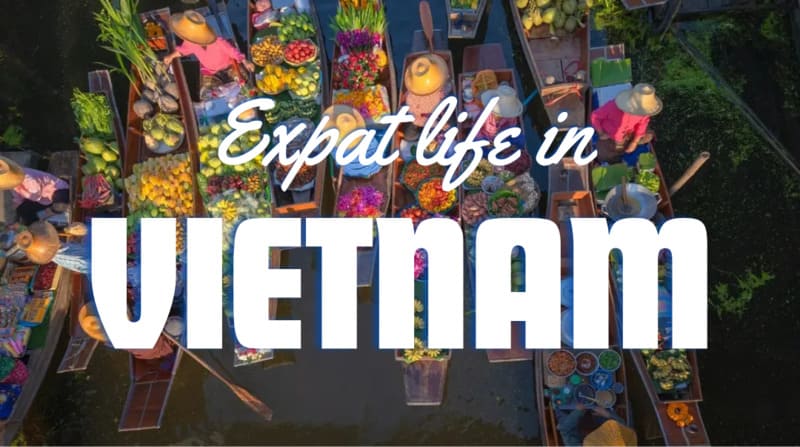
From navigating bustling city streets to savoring serene coastal towns, newcomers quickly realize life abroad comes with its share of surprises, lessons, and joys. Along the way, adjusting to local customs, building meaningful connections, and finding a sense of belonging can feel daunting—but also immensely fulfilling.
This article provides honest insights and practical advice for expats, helping you overcome common challenges, embrace cultural rhythms, and build a meaningful, fulfilling life in Vietnam from day one, turning each challenge into an opportunity for growth.
Expat Life in Vietnam: A Journey Beyond Arrival
Moving to a new country as an expat is rarely as simple as booking a flight and signing a lease. Living in Vietnam as an expat requires both practical preparation and a shift in mindset. Beyond the appeal of affordable living, vibrant street culture, and a thriving expat community, newcomers quickly encounter questions that touch every aspect of daily life:
- Where will I find a home that truly feels like mine?
- How do I balance work, family, and personal growth?
- How can my children thrive in a foreign environment?
- Most importantly, how do I cultivate a sense of belonging far from home?
This journey unfolds through intentional, everyday choices that shape long-term life abroad. From securing the right visa or residence card to choosing neighborhoods, understanding local culture, forming friendships with both locals and other expats, and navigating bureaucracy, each step builds resilience, adaptability, and confidence.
Over time, these challenges transform into lessons, guiding newcomers toward a fulfilling and deeply connected life in Vietnam.
Read more: Why Expats Fall in Love with Vietnam
Finding Home: Where Your Story Begins
Vietnam’s cities and towns each offer unique opportunities for expats seeking both work and life fulfillment. Ho Chi Minh City draws ambitious professionals with career growth and vibrant energy, while Hanoi captivates those longing for cultural immersion and heritage-rich streets. Coastal towns like Da Nang and Hoi An provide tranquility, flexibility, and scenic charm for remote workers, retirees, or creatives, though the expat community may be smaller.
Finding a place to live goes beyond affordability—it’s about comfort, safety, and connection. From serviced apartments that help newcomers ease into life abroad, to spacious villas offering privacy and outdoor space for families, Vietnam’s housing market accommodates diverse needs.

Choosing a neighborhood thoughtfully—close to international schools, coworking spaces, markets, or community hubs—creates the foundation for daily stability, meaningful routines, and authentic engagement with local culture. The right home transforms living abroad from a temporary arrangement into a fulfilling, long-term experience.
Read more: Finding “Home” Far Away: Real Stories from Tenants
Navigating Work, Finances, and Connectivity
For expats, building a career and maintaining a healthy work-life balance in Vietnam requires thoughtful planning. Work visas, investor visas, and local labor laws shape professional opportunities, while understanding them ensures smoother integration.
Beyond legalities, managing finances, budgeting wisely, and accessing reliable banking services are essential to daily life abroad. Opening a local bank account is more than a convenience—it signals full integration into the local expat community. Linking finances to apps like Momo or ZaloPay, securing dependable internet, and maintaining mobile connectivity are crucial for both professionals and families.
Over time, long-term expats combine global resources with local solutions, adapting routines to practical needs and lifestyle goals, creating a balanced and resilient life while living in Vietnam.
Read more: What Changes When Expats Work and Live in Vietnam
Health, Safety, and Peace of Mind
Healthcare is a top priority for expats, especially families seeking stability abroad. While public hospitals are improving, many expats rely on private clinics offering bilingual services and international standards.
Choosing the right health insurance plan, whether international or local, ensures peace of mind and long-term security. Regular check-ups, emergency preparedness, and understanding local medical infrastructure are essential steps for building a safe and sustainable life.

As expats settle, health strategies evolve from immediate care to proactive, ongoing wellness planning, supporting daily routines, family well-being, and confidence in navigating life in Vietnam.
Read more: Things Expats Slowly Learn to Love in Vietnam
Building Community and Belonging
One of the most transformative aspects of Expat Life in Vietnam is the connections formed along the journey. Local friendships, expat communities, and shared activities provide not only social support but also cultural insight, shaping how newcomers experience daily life abroad.
Whether through Facebook groups, coworking spaces, hobby clubs, or volunteer networks, expats quickly realize that community is their true lifeline. Belonging often transcends nationality or language. By participating in local events, learning cultural rhythms, and engaging in everyday interactions, expats turn strangers into trusted networks.
These relationships foster emotional stability, enrich lifestyle experiences, and create a strong sense of place, helping long-term residents navigate challenges, celebrate successes, and fully integrate into life in Vietnam.
Read more: Building a Support System in Vietnam Through Expat Communities
Embracing Challenges: Lessons from Daily Life Abroad
Life abroad is rarely without obstacles. Visa renewals, bureaucracy, language gaps, and cultural misunderstandings challenge even seasoned expats. Yet each obstacle provides a valuable lesson in resilience, patience, and adaptability, turning everyday struggles into opportunities for growth.
Many expats discover that embracing imperfection—both in the system and their own adaptation—cultivates flexibility and creative problem-solving. Practical solutions often come from local advice, peer networks, or inventive workarounds, highlighting the importance of curiosity, humility, and continuous learning.
Over time, these experiences strengthen confidence, enhance daily life abroad, and deepen the sense of long-term belonging in Vietnam.
Read more: Lessons Learned from First-Time Renters in Vietnam
Families, Children, and Raising Global Citizens
For families, expat life in Vietnam goes beyond housing or schooling. International schools provide globally recognized curricula, while neighborhoods offer safety, green spaces, and supportive communities. Children grow as resilient, adaptable, culturally aware third-culture kids.

Weekend trips, local festivals, and active participation in community life further enrich their upbringing, allowing families to balance professional goals with meaningful lifestyle choices. Parents often find that raising children abroad challenges routines but offers broader perspectives and personal growth.
Support systems—through other families, schools, or expat communities—create stability and confidence, helping families navigate daily life, build lasting friendships, and foster a sense of belonging while embracing the richness of life in Vietnam.
Read more: Raising Kids as an Expat: Stories Beyond Schools and Housing
Cultural Adaptation: Learning the Rhythm
Adapting to Vietnamese culture is a gradual and deeply rewarding process. Expats slowly learn to appreciate local customs, market rituals, and social etiquette, often uncovering unexpected joys along the way.
Simple steps—mastering basic phrases, exploring neighborhoods, attending local festivals, or participating in community activities—gradually become second nature, enriching daily life abroad.
This cultural adaptation not only makes routines smoother but also deepens a genuine sense of belonging. The longer expats immerse themselves, the more they experience life with authenticity, confidence, and connection, transforming Vietnam from a temporary residence into a fulfilling, long-term home while building meaningful ties within the local community.
Read more: The Most Common Culture Shocks for New Expats in Vietnam
Looking Beyond Today: Investing in Your Future
As expats settle in Vietnam, questions about long-term investment naturally emerge—whether in property, business ventures, or community engagement. Owning a condo or house, contributing locally, or nurturing meaningful relationships reflects a commitment beyond daily routines. Such choices signal a shift from transient living to rooted belonging, guided by both practical realities and personal aspirations.

Building a future in Vietnam extends beyond finances—it encompasses cultural understanding, social connections, and emotional growth. Every decision, from selecting the right neighborhood to participating in local networks, shapes how fully expats experience life abroad, creating long-term stability, personal fulfillment, and a lasting sense of home within the vibrant expat community.
Read more: The Turning Point: Why Expats Stay Long-Term in Vietnam
Final Thoughts: Living Fully as an Expat in Vietnam
Expat Life in Vietnam is a continuous journey of discovery, connection, and personal growth. Living abroad challenges assumptions, broadens perspectives, and transforms daily routines into meaningful practices. Success comes not from perfection but from integration, adaptability, and the ability to embrace both challenges and joys.
For professionals, families, and creatives alike, Vietnam offers a unique landscape to grow, connect, and thrive. Every street, interaction, and community contributes to a sense of belonging that develops over time.
From navigating bureaucracy to building support networks or finding the right home, expats learn that living in Vietnam is about creating a life authentically your own. When you’re ready to make your move easier, JHouse is here to help you find housing that feels like home.
JHouse Content Team
The in-depth content development team on housing services for foreigners & Vietnamese in Vietnam. The content is simple, easy to understand, and logically arranged to bring readers useful topics and information from real experiences.
What Changes When Expats Work and Live in Vietnam
How Expat Life in Vietnam Changes Work and Daily Living
Living abroad always requires adjustment. But when expats choose to work and live in Vietnam, the shift goes far deeper than changing addresses or job titles. What often begins as a career move slowly reshapes how people think about time, ambition, stability, and what a meaningful life actually looks like.
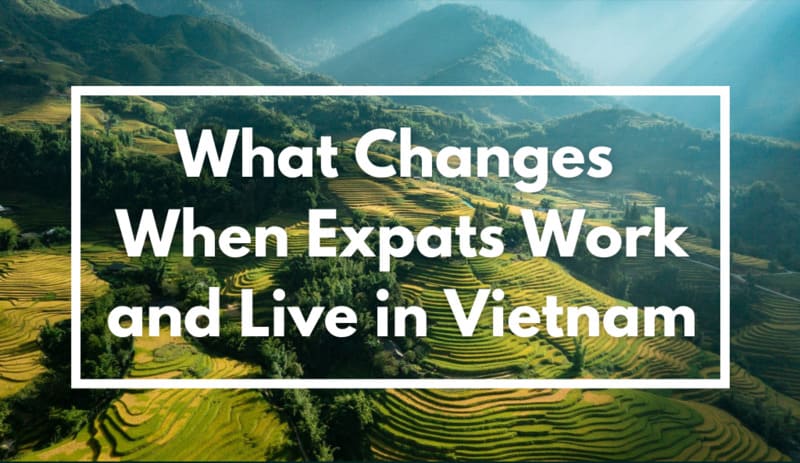
Vietnam has a way of challenging familiar assumptions—about productivity, career growth, work-life balance, and even success itself. The longer expats stay, the clearer it becomes: working in Vietnam isn’t simply about earning an income, and living here isn’t just about affordability or novelty. It’s about integration, recalibration, and learning to move with a different rhythm.
This article explores what truly changes when expats work and live in Vietnam—from mindset shifts and career dynamics to daily routines, relationships, and the quiet emergence of belonging.
From Temporary Assignment to Intentional Life Choice
For many newcomers, Vietnam begins as a short-term plan. A contract, a remote role, a teaching post, or a business opportunity brings flexibility—and a quiet exit strategy. But expat life in Vietnam rarely stays confined to timelines. Something shifts.
Days become less provisional. Weekend habits take shape. Familiar cafés replace guidebook lists. Local faces begin to matter. Without announcement, the question changes from “How long will I stay?” to “How do I build a life that actually works here?”
This marks the first real transformation. Vietnam stops being a backdrop to work and becomes the context for living. Career decisions no longer stand alone. Housing, community, healthcare, and long-term stability carry equal weight. This is when expats stop managing two parallel tracks—and begin to truly work and live in Vietnam as one integrated experience.
Read more: The Turning Point: Why Expats Stay Long-Term in Vietnam
Work and Live in Vietnam: A Shift in Career Perspective
Choosing to work and live in Vietnam often reshapes how expats approach their careers. In fast-moving cities like Ho Chi Minh City or Hanoi, work culture feels both intense and surprisingly flexible. Hierarchies exist, but personal relationships often outweigh formal titles. Time is interpreted differently—less rigid in some ways, more demanding in others. Meetings may start late, yet expectations for availability can stretch beyond office hours.
For many, this sparks a subtle yet profound realization: career growth is no longer just upward mobility. It becomes about autonomy, sustainability, and alignment with life outside work. Some uncover entrepreneurial energy they never explored back home, while others pivot to remote work, consulting, or portfolio careers, gaining more control over their time and location. Even in traditional roles, expats often reassess ambition, prioritizing longevity over burnout.

Here, balancing work and life in Vietnam is not about doing less—it’s about working differently, on their own terms, while fully embracing the rhythms of daily life.
Read more: Expat Couples in Vietnam: Love, Work & Life TogetherDaily Life Becomes the Real Teacher
For expats who work and live in Vietnam, daily life quickly becomes the real teacher. Simple routines take on unexpected significance: morning commutes on motorbikes, bustling neighborhood markets, crowded sidewalks, and spontaneous street meals create a rhythm that is both chaotic and grounding.
At first, the intensity can overwhelm—traffic, noise, language gaps, and cultural misunderstandings test patience at every turn.
Over time, expats learn to navigate not by resisting but by adapting. Negotiating rent, managing utilities, communicating needs, and reading unspoken cues become second nature. This practical mastery builds confidence and a sense of agency.
Many describe it as the moment when Vietnam stops feeling like a temporary stop and starts feeling like a place where life, work, and belonging intersect naturally.
Read more: https://jhouse.vn/living-in-vietnam-everyday-joys/
Redefining Work-Life Balance in Vietnam
One of the most profound shifts expats notice in Vietnam is how balance itself is experienced. In many Western contexts, work-life balance is scheduled—gym sessions, family time, or downtime carefully slotted into calendars. In Vietnam, balance emerges organically through integration rather than separation.
Lunches stretch longer. Social interactions flow seamlessly into workdays. Family life overlaps with professional life. Children accompany parents more freely. Community appears in everyday spaces, not only on weekends.

Life here isn’t slower, but layered. Cities like Ho Chi Minh City move fast, yet intensity alternates with pause, noise gives way to quiet, and work blends with connection. For many, this rhythm feels more sustainable than the rigid acceleration left behind—showing how choosing to work and live in Vietnam can reshape not just schedules, but the way life is truly lived.
Read more: Expat Couples in Vietnam: Love, Work & Life Together
Cultural Adaptation Changes More Than Behavior
Adapting to life in Vietnam goes far beyond learning customs—it requires active participation and attention. Newcomers often face moments of disorientation: direct communication softens, patience must be strategic, and relationships frequently take priority over immediate outcomes.
In the workplace, understanding group dynamics, listening between the lines, and respecting face-saving conventions become essential skills. In daily life, knowing when to assert oneself or yield subtly shapes interactions.
These adjustments gradually cultivate a deeper sense of emotional intelligence, resilience, and cross-cultural awareness. Expats find themselves more flexible, empathetic, and globally minded. For those who choose to work and live in Vietnam, these lessons extend beyond professional and social settings, creating a foundation for meaningful integration, smoother daily rhythms, and authentic belonging.
Read more: The Most Common Culture Shocks for New Expats in Vietnam
Housing, Stability, and the Need for Roots
As expats work and live in Vietnam longer, priorities naturally shift toward stability and belonging.
Short-term rentals gradually give way to long-term leases, and neighborhood choice becomes intentional. Proximity to schools, green spaces, healthcare, and community matters far more than novelty. Housing transforms from mere shelter into an emotional infrastructure that supports daily life.
This is often when expats seek clarity: transparent contracts, reliable landlords, and guidance navigating local systems. Stability reduces stress and cognitive load, allowing energy to flow back into work, family, and personal growth. Relocating to Vietnam is simple; staying well and thriving requires intentional structure and thoughtful roots.
Read more: Finding “Home” Far Away: Real Stories from Tenants
Expat Communities and Local Connections
Long-term life in Vietnam rarely thrives in isolation. While expat networks provide immediate familiarity, true fulfillment often emerges from balancing global and local relationships. Shared experiences with other foreigners normalize challenges, while friendships with locals unlock insights no guidebook can teach.

Coworking spaces, hobby groups, school communities, and neighborhood routines all help build practical support systems. Over time, these connections shift focus from nationality to shared values and daily rhythms.
For those who work and live in Vietnam, this consistency becomes the foundation of belonging—quietly forming a sense of home that blends work, life, and community seamlessly.
Read more: Building a Support System in Vietnam Through Expat Communities
Long-Term Living Brings Long-Term Thinking
As expats settle deeper into work and life in Vietnam, long-term thinking naturally emerges. Questions evolve:
- Is this the right place to grow professionally?
- Is it the best environment to raise children?
- How can I safeguard health, finances, and future goals here?
These questions reflect a maturing expat journey. Vietnam becomes more than a phase—it transforms into a platform for investment, education, property, or deeper community ties. Careers are often adjusted to support sustainability, while social and family networks grow stronger.
What truly matters is not finding immediate answers, but embracing the mindset shift: choosing to work and live in Vietnam shapes decisions that extend well beyond today.
Read more: Expat Life in Vietnam: Real Stories and InsightsChallenges That Shape Resilience
Working and living in Vietnam brings rewards—but not without friction. Bureaucracy, shifting policies, language gaps, and infrastructure quirks test patience, leaving even experienced expats fatigued or uncertain. Yet these challenges often become catalysts for growth.
Those who choose to work and live in Vietnam learn to build buffers: trusted advisors, reliable services, supportive communities, and realistic expectations. They stop chasing perfection and start cultivating resilience.
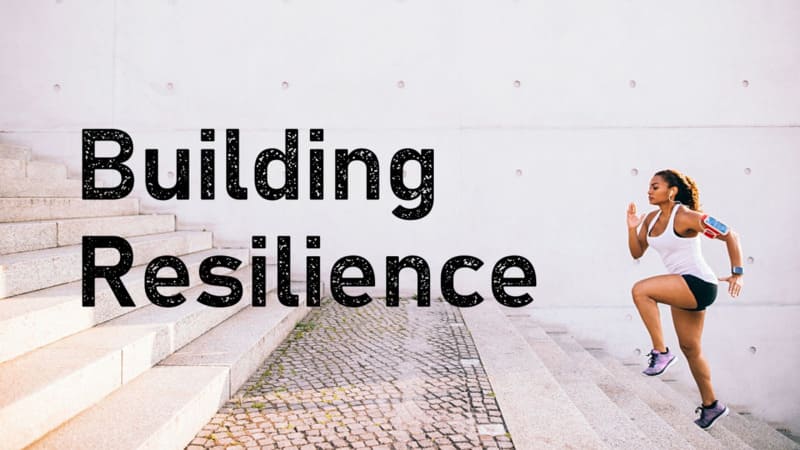
Over time, these obstacles define less of daily life and instead become part of the story that gives long-term living depth, meaning, and the confidence to thrive in both work and personal life.
Read more: Funny & Unexpected Moments When Living in HCMC
Final Thoughts: From Adjustment to Belonging
There’s a subtle moment when many expats realize that Vietnam is no longer just a place they adapt to—it is a place that shapes them. Working and living in Vietnam refines priorities, reshapes routines, and recalibrates values, creating a life that feels intentional, connected, and profoundly human.
The change is rarely dramatic, but it is lasting: careers integrate with daily life, success becomes sustainable, and belonging quietly replaces transition. At JHouse, a home is not the whole journey—but it is the ground everything else stands on. Our role is to help expats start that journey with housing stability.
Vietnam may begin as a destination, but for many, it becomes a chapter they choose to stay in, fully and intentionally.
JHouse Content Team
The in-depth content development team on housing services for foreigners & Vietnamese in Vietnam. The content is simple, easy to understand, and logically arranged to bring readers useful topics and information from real experiences.
If We Could Start Over: How Expats Would Do Vietnam Differently
Expat Life in Vietnam: What We’d Do Differently If Starting Over
Do Vietnam Differently — it’s a quiet thought many long-term expats return to once the excitement of arrival fades. Living in Vietnam as an expat often starts with freedom and spontaneity, but over time, routines replace novelty. Short-term choices become long-term consequences. And what once felt flexible begins to feel foundational.

This article isn’t about regret. It’s about clarity earned through experience. Drawing from years of expat life in Vietnam, shared reflections, and real-life adjustments, we explore how expats would do Vietnam differently if given the chance to start over.
From mindset shifts to everyday decisions, these insights reveal what truly sustains long-term living in Vietnam — and the lessons many wish they had understood before calling it home.
A Mindset Reset: From Short-Term Thrill to Long-Term Intention
Most expats' lives in Vietnam begin with flexibility — short leases, temporary work, open-ended plans. At first, that freedom feels liberating. But over time, it can quietly delay commitment. Decisions are postponed. Priorities remain undefined. And without noticing, months turn into years of drifting rather than building.
Long-term expats often say the most important change they’d make isn’t logistical — it’s internal. Doing Vietnam differently starts with redefining intention. Instead of asking, How affordable or exciting can this be? The question becomes, What kind of life am I shaping here?
That shift reframes everything: where you live, who you invest in, how you work, and how deeply you integrate. Long-term living in Vietnam isn’t sustained by spontaneity. It’s sustained by clarity — and the courage to choose it early.
Read more: The Turning Point: Why Expats Stay Long-Term in Vietnam
Do Vietnam Differently: Lessons from Long-Term Expat Life
Ask long-term expats what they’d change if starting over, and a common theme emerges: they would prioritize stability much earlier. Not as a form of settling — but as a way of protecting long-term wellbeing. Stability, in this sense, is what allows life in Vietnam to feel grounded rather than temporary.
Doing Vietnam differently often shows up in small but decisive shifts. Choosing neighborhoods that support daily rhythm, not just lower rent. Investing in relationships that endure, not just social convenience. Planning for legal and financial continuity before problems arise.

These lessons rarely appear in relocation checklists. They’re learned slowly — through trial, cultural adaptation, and reflection. And by the time they surface, they often mark the turning point between merely staying in Vietnam and truly building a life there.
Read more: What Changes When Expats Work and Live in VietnamHousing Choices That Shape Daily Life
One of the most underestimated expat mistakes in Vietnam is overlooking how deeply housing affects emotional well-being. Early on, many newcomers prioritize price or nightlife access. But over time, constant noise, unclear management, and unstable contracts quietly drain energy and patience.
Looking back, long-term expats often say they would approach housing with more intention. They’d spend time understanding neighborhoods before committing, work with trusted agents to avoid hidden issues, and choose homes that support rest, routine, and family life — not just convenience.
Building a life in Vietnam requires more than a place to sleep. A well-chosen home reduces friction, anchors daily rhythms, and creates a sense of continuity. Housing isn’t just a logistical choice. It’s the foundation on which belonging in Vietnam is built.
Read more: Lessons Learned from First-Time Renters in Vietnam
Community Isn’t Optional — It’s Essential
At the beginning of expat life, connection feels easy. Social circles form quickly, events are frequent, and friendships feel effortless. But as time passes, people leave, priorities shift, and many expats are left rebuilding from scratch. Looking back, long-term expats often say they wish they had invested earlier in relationships built to last.
Local integration in Vietnam doesn’t depend on perfect language skills. It grows through repetition — greeting familiar faces, returning to the same café, joining small interest groups, and showing up consistently. Over time, these quiet rituals create trust.
Those who stay long-term often agree on one thing: community is what transforms life from temporary to rooted. Doing Vietnam differently means treating connection as essential — not optional.
Read more: Building a Support System in Vietnam Through Expat Communities
Cultural Adaptation Beyond Survival Mode
Vietnam’s cultural differences aren’t obstacles to overcome — they’re systems to understand. Traffic patterns, bureaucracy, communication styles, and social norms follow an internal logic that often feels chaotic at first. Many expats initially navigate daily life in survival mode, constantly comparing everything to how things “should” work back home.
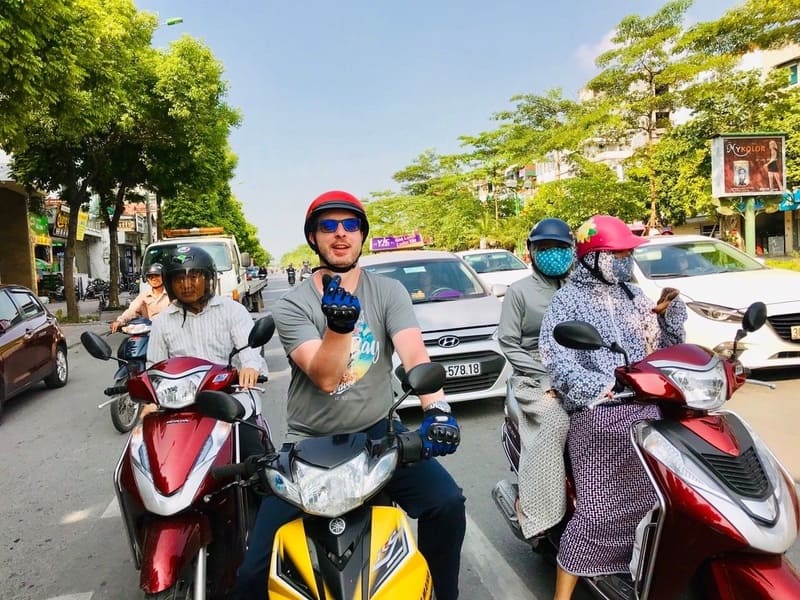
With time, perspective begins to shift. Cultural adaptation in Vietnam becomes less about coping and more about learning the rhythm beneath the surface. Long-term expats often say they wish they had approached these differences with curiosity sooner — and frustration less often.
Mistakes are inevitable. But expat mistakes in Vietnam frequently become turning points when met with humility. Each misunderstanding becomes an invitation to adapt, deepen understanding, and move closer to genuine belonging.
Read more: The Most Common Culture Shocks for New Expats in Vietnam
Rethinking Work and Career Growth
Vietnam draws in professionals, entrepreneurs, and remote workers with opportunity and flexibility. Early career choices are often shaped by convenience — attractive offers, fast growth, or short-term gains. But over time, many expats begin to reassess.
Those who reflect on starting over often say they would align work more closely with long-term residency goals, invest earlier in local professional networks, and place greater value on balance over constant expansion. Living in Vietnam as an expat offers diverse career paths, but not all of them are sustainable.
When work decisions ignore lifestyle realities, burnout follows quickly. Long-term success isn’t defined by momentum alone — it’s shaped by choices that support both professional growth and a livable, grounded life.
Read more: Expat Couples in Vietnam: Love, Work & Life TogetherFinancial Planning for Real Life
Vietnam may be affordable, but affordability without structure often leads to instability. Many expats admit they delayed setting up proper banking, insurance, and savings systems — assuming they could handle it later. Over time, that delay creates unnecessary stress.

Doing Vietnam differently often means putting financial foundations in place early: opening a local bank account, choosing health insurance designed for long-term living, budgeting for visa changes or unexpected expenses.
These steps rarely feel urgent at first. Yet they quietly determine peace of mind. Long-term living in Vietnam isn’t sustained by low costs alone — it’s sustained by financial clarity and preparedness.
Read more: Long-Term Budgeting in Vietnam: Monthly Costs & Smart Saving TipsFamily, Children, and Long-Term Vision
For expat families, reflection often brings clarity. Many parents say they would have planned schooling, healthcare, and housing earlier — instead of making decisions reactively. Vietnam offers meaningful opportunities for children to grow as third-culture kids, but that experience depends on stability.
Families looking back often realize that intentional planning was the turning point. When daily life feels secure, children settle faster, parents worry less, and Vietnam shifts from a temporary chapter to a place where a family can genuinely put down roots.
Read more: Raising Kids as an Expat: Stories Beyond Schools and Housing
Belonging in Vietnam Is Built, Not Found
One of the deepest realizations long-term expats share is that belonging in Vietnam doesn’t arrive all at once. It forms gradually — through daily routines, familiar faces, and shared moments that quietly accumulate over time. What once felt foreign becomes assumed. What once required effort becomes natural.
Starting over wouldn’t mean avoiding challenges. It would mean understanding their value sooner. Living differently in Vietnam isn’t about doing everything right. It’s about showing up consistently, staying present through discomfort, and allowing connection to grow. Belonging, in the end, is less a destination — and more a practice shaped by time.

Read more: How Expats Redefine “Belonging” While Living in Vietnam
Conclusion
Do Vietnam Differently isn’t a call to rewrite the past. It’s an invitation to live more intentionally in the present. Long-term expats rarely wish they had chosen another country — they wish they had trusted the process sooner.
Building a life in Vietnam becomes lighter when decisions are grounded in clarity: stability creates freedom, community creates belonging, and reflection turns experience into wisdom. Whether you’re newly arrived or years into your expat journey, it’s never too late to pause, recalibrate, and choose differently.
At JHouse, we work with expats who are building lives — not just finding apartments. By simplifying housing decisions and sharing local understanding, we help create the stability that allows long-term living in Vietnam to feel grounded, confident, and genuinely sustainable.
JHouse Content Team
The in-depth content development team on housing services for foreigners & Vietnamese in Vietnam. The content is simple, easy to understand, and logically arranged to bring readers useful topics and information from real experiences.
Building a Support System in Vietnam Through Expat Communities
Expat Communities: Building a Support System for Expat Life in Vietnam
Moving to a new country is often framed as an adventure. Yet once the novelty fades, many expats encounter a quieter reality: life abroad can feel uncertain and isolating without the right people beside you. In Vietnam—where language, routines, and social norms may feel unfamiliar—expat communities often become the unseen structure that supports daily life.

For those planning long-term expat life in Vietnam, community is not a bonus; it is essential. Beyond visas, housing, and logistics, a reliable support system shapes how confidently you adapt, how deeply you connect, and whether Vietnam feels temporary or truly livable.
This article explores how expat communities in Vietnam help newcomers and long-term residents build stability, resilience, and a genuine sense of belonging—one shared experience at a time.
From Arrival to Adjustment: Why Support Systems Matter
The first weeks in a new country are rarely calm. Everything feels immediate—finding housing, opening a bank account, navigating traffic, decoding paperwork. Without context or guidance, small uncertainties quickly accumulate into exhaustion.
This is where an expat support system begins to matter. A timely recommendation in a community group, a message from someone who has already navigated the process, or a casual coffee with another expat can prevent weeks of trial and error. More importantly, these moments offer reassurance: you are not facing this transition alone.
Over time, support shifts from problem-solving to perspective. Practical advice turns into shared experience, and familiarity replaces anxiety. The longer you stay, the more these connections shape your choices—where you settle, how you work, and whether Vietnam remains temporary or becomes a place to build something lasting.
Read more: Why Expats Fall in Love with Vietnam
Expat Communities as the Backbone of Daily Life
At their core, expat communities are not defined by nationality but by shared transition. Everyone arrives carrying questions, uncertainty, and the need to re-orient daily life. That common starting point often builds trust faster than in familiar environments back home.
In Vietnam, these communities surface in many everyday forms:
- Online groups where advice circulates quickly
- Neighborhood networks that share local insight
- Professional circles in co-working spaces
- School-centered parent groups
- Hobby or volunteer communities built around shared interests
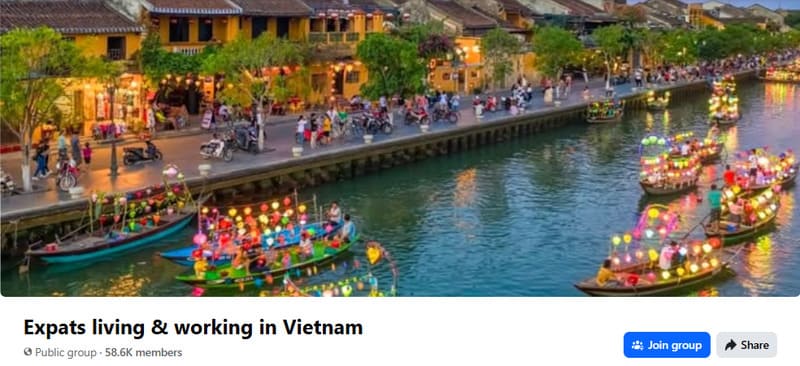
Individually, they may seem informal. Together, they create a quiet yet powerful support system for expats. Through these layered connections, people adapt not only practically, but socially and emotionally—until community stops being something they seek, and becomes something they rely on.
Read more: Finding Your Tribe: Join Expat Communities in Ho Chi Minh CityThe Practical Role of Expat Communities in Vietnam
1. Navigating Systems and Bureaucracy
Vietnam’s administrative systems can feel overwhelming, especially as regulations shift and information is not always centralized. Within expat communities in Vietnam, knowledge circulates quickly and informally. Recommendations for visa agents, healthcare providers, or trustworthy landlords are often based on lived experience, helping newcomers avoid costly mistakes.
2. Housing and Neighborhood Choices
Housing decisions benefit just as much from community insight. Choosing where to live is rarely about price alone—it is about rhythm and fit. Expat communities help clarify which neighborhoods suit families, remote workers, or those seeking quieter routines, reducing trial-and-error and allowing people to settle with confidence.
Read more: Finding “Home” Far Away: Real Stories from Tenants
3. Work, Networking, and Opportunity
For professionals and entrepreneurs, the community also shapes opportunity. Many roles, partnerships, and collaborations emerge through conversation rather than listings. In this way, expat networking becomes a bridge—transforming information into action, and uncertainty into momentum.
Social Support: Beyond Convenience
While logistics help expats function, the deeper value of community lies in emotional grounding. Living abroad inevitably challenges identity—through language barriers, cultural missteps, and quiet moments of loneliness. This is where social support for expats in Vietnam becomes essential.
A shared meal, a conversation in familiar language, or a space where frustration needs no explanation can restore balance. Over time, these small interactions build resilience and confidence.

Many long-term expats find that their closest friendships are not formed through convenience, but through consistency—returning to the same yoga class, volunteering regularly, or showing up to familiar faces at recurring events. In these repeated moments, the community shifts from comfort to anchor.
Read more: Local Friendships That Changed Expats’ Lives in VietnamBuilding Community in Vietnam Takes Intention
Community rarely forms by accident. Expats who thrive long-term in Vietnam approach connection with the same intention they apply to work or relocation planning. Rather than waiting for belonging to appear, they place themselves where connection can grow:
- Expat Facebook groups in major cities for real-time advice and events
- Co-working spaces that host talks, workshops, and social nights
- Meetup platforms for shared interests and hobbies
- Volunteer networks that encourage purpose-driven relationships
Each interaction is only a starting point. What matters is presence over time. Through consistency—returning, listening, and contributing—casual encounters gradually become familiar faces, and familiarity becomes trust.
Families, Partners, and Long-Term Stability
For families and long-term partners, expat communities often become an extended family. Parenting abroad brings layered challenges—from choosing schools to navigating healthcare systems—where formal support can feel fragmented.
Community helps bridge those gaps. School networks, neighborhood playgroups, and parent-led forums offer reassurance through shared experience rather than advice alone. Children gain continuity through familiar routines and friendships, while parents find perspective, empathy, and practical guidance.
Over time, this shared journey creates stability. For many families, it is not a single opportunity that anchors them to Vietnam, but the presence of people who grow alongside them.
Read more: Raising Kids as an Expat: Stories Beyond Schools and Housing
Belonging in Vietnam: When Community Changes Perspective
Belonging in Vietnam rarely arrives as a moment—it unfolds quietly. There comes a point when the country no longer feels like a temporary assignment but a place you move through with ease.

You are recognized at familiar cafés. Your circle blends expats and locals. Advice begins to flow both ways. At this stage, belonging in Vietnam shifts from comfort to contribution.
Community is no longer a safety net you rely on, but a shared space you help sustain. What once supported your transition now reflects your presence, turning daily life into something rooted and reciprocal.
Read more: How Expats Redefine “Belonging” While Living in Vietnam
Overcoming Common Barriers to Connection
Overcoming barriers to connection is part of every expat journey. Social fatigue, cultural misunderstandings, and the uncertainty of short-term friendships can make openness feel risky. In Vietnam’s transient expat landscape, many hesitate to invest deeply, unsure how long connections will last.
A sustainable support system abroad grows from balance—remaining open while honoring personal boundaries. Not every relationship will endure, and that is not failure. Each interaction still adds context, perspective, and resilience, shaping a richer understanding of life abroad and your place within it.
Read more: The Most Common Culture Shocks for New Expats in Vietnam
Long-Term Expat Life Is Built Together
Long-term expat life is rarely sustained by logistics alone—it is built through people. Community influences mental well-being, career confidence, family stability, and how grounded daily life feels.
Expats who invest in relationships tend to adapt with greater ease and remain with greater intention. Challenges do not disappear, but they feel lighter when shared, contextualized, and understood.
Over time, community becomes more than support—it becomes continuity. And it is within that shared continuity that life in Vietnam stops feeling temporary and begins to feel deliberately lived.

Read more: The Turning Point: Why Expats Stay Long-Term in Vietnam
How JHouse Fits into the Bigger Picture
At JHouse, we work alongside expats who are not simply relocating, but intentionally building lives in Vietnam.
We see how the right home—chosen with lifestyle, routine, and community in mind—creates the stability needed for a deeper connection. Housing is not an isolated decision; it shapes where relationships form and how daily life unfolds.
By simplifying the housing process and sharing grounded local insight, JHouse helps reduce uncertainty at a critical stage of transition—allowing expats to focus less on logistics and more on creating the relationships and rhythms that make Vietnam feel genuinely lived in.
Read more: JHouse – Where Great Homes Meet Great PeopleFinal Thoughts: From Support to Belonging
There is a quiet moment when expat life shifts. You are no longer just coping—you are participating. Questions turn into shared knowledge. Uncertainty softens into confidence. And Vietnam becomes more than a place you live; it becomes a place you belong.
For many, this transformation is shaped by expat communities. They provide structure during uncertainty, companionship through transition, and meaning beyond logistics. Community does not remove challenges—but it makes them shared, manageable, and human.
If you are building a long-term life in Vietnam, investing in the right support system matters. And when the time comes to find a home that supports your routines, connections, and sense of stability, JHouse is here to help you take that step with clarity and confidence.
JHouse Content Team
The in-depth content development team on housing services for foreigners & Vietnamese in Vietnam. The content is simple, easy to understand, and logically arranged to bring readers useful topics and information from real experiences.
Raising Kids as an Expat: Stories Beyond Schools and Housing
Expat Parenting in Vietnam: Stories Beyond Schools and Housing
Raising kids as an expat in Vietnam is rarely just a logistical decision. It is an emotional commitment—marked by uncertainty, quiet hope, and the desire to create stability on unfamiliar ground.

While schools, visas, and housing often dominate early conversations, expat parenting quickly surfaces deeper questions: How will my child adapt? Where will they feel safe? Can this place truly become home?
Across Vietnam—from Ho Chi Minh City to Hanoi and Da Nang—expat families are learning that raising children abroad is not defined by addresses or classroom rankings. It unfolds through everyday routines, cultural negotiations, and the gradual building of trust—between parents and place, and within the family itself. This is where expat parenting in Vietnam begins to move beyond planning and toward belonging.
Raising Kids as an Expat: When Practical Decisions Aren’t Enough
Raising kids as an expat begins long before the first school tour or lease agreement. It starts with a mindset shift—from seeing life abroad as temporary, to intentionally building a family life overseas.
Many expat parents arrive in Vietnam focused on solving immediate needs: enrolling children in international schools, finding a safe apartment, and securing reliable healthcare. These decisions matter. But over time, families discover that long-term stability is sustained by more than infrastructure—it depends on emotional integration.
Children are highly perceptive. When parents remain mentally “in transit,” children often struggle to feel grounded. Expat parenting in Vietnam becomes more sustainable when families stop comparing daily life to what they left behind, and begin engaging fully with where they are—its rhythms, limitations, and quiet opportunities.
This shift—from managing logistics to cultivating presence—is where expat family life truly starts to take root.
Read more: Expat Life in Vietnam: Real Stories and InsightsBeyond Schools: Learning Happens Everywhere
Vietnam offers a growing range of international schools, from British and IB curricula to bilingual programs. For many expat parents, education becomes the first—and most stressful—decision. Yet raising children abroad soon reveals a deeper truth: learning doesn’t end at the school gate.
Expat kids absorb lessons daily by watching how their parents navigate markets, greet neighbors, bridge language gaps, or respond to cultural differences. These ordinary moments quietly teach resilience, empathy, and adaptability—skills no curriculum can fully replicate.

In Vietnam, children often learn to:
- Communicate across language barriers using patience and creativity
- Observe social cues in a culture that values harmony and respect
- Develop independence earlier by navigating unfamiliar environments
Over time, these experiences shape third-culture kids—globally aware, emotionally perceptive, and comfortable with difference. For many expat families, this becomes one of the most meaningful outcomes of raising kids overseas.
Beyond Housing: Home Is an Emotional Space
Housing is often treated as a practical checklist—size, budget, safety, proximity to school. Yet for families raising kids as expats, home carries a deeper emotional weight. It is where children find continuity, predictability, and a sense of ownership in an otherwise changing environment.
Frequent moves, unclear lease terms, or unresolved maintenance issues may seem minor to adults, but they quietly erode a child’s sense of security. In Vietnam’s flexible housing market, many expat families benefit from slowing down. Short-term rentals allow space to explore neighborhoods before committing.
Areas such as Thao Dien, District 7, Tay Ho, or An Thuong appeal not only for convenience, but for walkability, green spaces, and everyday community life. At JHouse, we often see that once housing stress fades, families regain the mental space to parent with calm, presence, and confidence.
Read more: Finding “Home” Far Away: Real Stories from Tenants
Daily Life: Where Expat Parenting Really Takes Shape
The most defining moments of expat parenting are rarely dramatic. They unfold quietly through everyday routines. Morning school drop-offs along busy streets. Weekend bike rides by the river. Shared meals that blend familiar traditions with Vietnamese flavors. These small rituals create stability—and children thrive on their predictability.
Vietnam’s lifestyle offers unexpected advantages for expat families:
- Affordable domestic help allows parents more quality time with children
- Outdoor living encourages active, social childhoods
- Proximity to nature enables regular family escapes
Over time, many families notice a subtle shift. Life feels less rushed. Parenting becomes less about managing schedules and more about being present together. This rhythm—grounded, flexible, and relational—is often what convinces expat families that Vietnam can support not just daily life, but long-term family growth.
Read more: Everyday Joys of Living in Vietnam
Cultural Adaptation: A Family Process
Cultural adaptation for children rarely happens in isolation. It reflects how parents engage with the world around them. Children notice everything—frustration at small inconveniences, curiosity toward difference, moments of respect or withdrawal. These cues quietly shape how safe the unfamiliar feels.

Families who approach life in Vietnam with openness often raise children who grow confident navigating cultural differences. Simple acts—using basic Vietnamese phrases, greeting neighbors, joining local celebrations—send powerful signals of belonging. Expat parents may worry about cultural confusion, yet children usually adapt faster than adults. What they need most is emotional reassurance: permission to ask questions, voice discomfort, and adjust at their own pace.
Expat parenting in Vietnam becomes more sustainable when adaptation is treated not as a problem to solve, but as a shared family journey—one shaped by patience, presence, and trust.
Read more: The Most Common Culture Shocks for New Expats in Vietnam
Community: The Invisible Support System
Isolation is one of the quietest—and heaviest—challenges expat families face. Even with comfortable housing and good schools, daily life can feel fragile without connection. Community reshapes the expat family experience, not through occasional playdates or school networks, but through consistent relationships that offer understanding without explanation.
In Vietnam, expat parents often find support through:
- School parent communities
- Neighborhood friendships
- Sports clubs, hobby groups, or volunteer projects
- Online expat groups that transition into offline connections
Children benefit profoundly from watching their parents build friendships. It sends a simple, reassuring message: we are not navigating this alone. Belonging rarely arrives all at once. It forms gradually—through showing up, sharing challenges, and trusting small moments to turn unfamiliar places into something closer to home.
Read more: Local Friendships That Changed Expats’ Lives in Vietnam
Emotional Challenges Parents Don’t Talk About
Behind curated photos and positive stories, expat parenting carries quiet emotional weight. Parents often wrestle with guilt: Am I taking something away from my child by raising them abroad? Am I choosing exploration over stability?
Moments of doubt surface during illnesses, school transitions, or cultural misunderstandings—especially when far from familiar support systems in Vietnam. These feelings are not signs of failure; they are part of the process. Long-term expat families learn that stability doesn’t come from removing uncertainty, but from navigating it together with honesty and calm.

Raising kids as an expat requires emotional transparency. Children don’t need perfect parents. They need grounded ones who can hold uncertainty without passing it on.
Read more: How Expats Redefine “Belonging” While Living in Vietnam
Raising Globally Minded Children in Vietnam
For families who choose to stay, Vietnam becomes more than a setting—it quietly shapes their children’s worldview. Kids raised here learn to read contexts, adapt across cultures, and feel comfortable in difference.
They grow up navigating languages, traditions, and social cues with ease, understanding that “normal” is flexible and belonging isn’t tied to a single place.
This global mindset isn’t formed in classrooms alone. It develops through everyday exposure—shared meals, local friendships, and constant cross-cultural interaction. Over time, these lived experiences become one of the most lasting gifts of expat parenting in Vietnam.
When Vietnam Starts to Feel Like Home
There’s a quiet shift many expat families recognize. Weekend plans no longer feel temporary. Children speak of Vietnam as “home” without thinking. And the idea of leaving begins to carry more weight than staying. In that moment, expat parenting stops feeling like an experiment—and becomes a chapter of life with roots.
At JHouse, we support families through the housing decisions that shape each stage of this transition. Our work focuses on more than just finding a place to live. By reducing friction, clarifying decisions, and creating housing stability, we help families reclaim mental space.
When daily logistics feel settled, parents are free to focus on what matters most—being present, grounded, and fully engaged in the life they’re building in Vietnam.

Read more: Things Expats Slowly Learn to Love in Vietnam
Final Thoughts: Parenting Beyond Checklists
Raising kids as an expat in Vietnam isn’t defined by schools, housing, or paperwork alone. It’s shaped by everyday choices, emotional resilience, and the willingness to build family life without a fixed template.
For families who engage deeply, Vietnam offers more than affordability or convenience. It offers space—to slow down, to reconnect, and to raise children who feel secure navigating an ever-changing world. The journey isn’t always smooth. There are doubts, adjustments, and moments of uncertainty. But for many expat families, the growth—both for parents and children—makes it profoundly worthwhile.
And when housing becomes part of that equation, having the right support can make all the difference. When you’re ready to find a home that truly supports your family life in Vietnam, JHouse is here to help—quietly, clearly, and with care.
JHouse Content Team
The in-depth content development team on housing services for foreigners & Vietnamese in Vietnam. The content is simple, easy to understand, and logically arranged to bring readers useful topics and information from real experiences.
Things Expats Slowly Learn to Love in Vietnam
What Expats Gradually Learn to Love About Living in Vietnam
For many expats, the journey of adapting to life in Vietnam is full of surprises. What begins as a practical decision—work, study, or family relocation—slowly transforms into something deeper. Love in Vietnam goes beyond scenic landscapes or vibrant cuisine; it emerges in daily life, local culture, and the rhythms that make a new country feel like home.
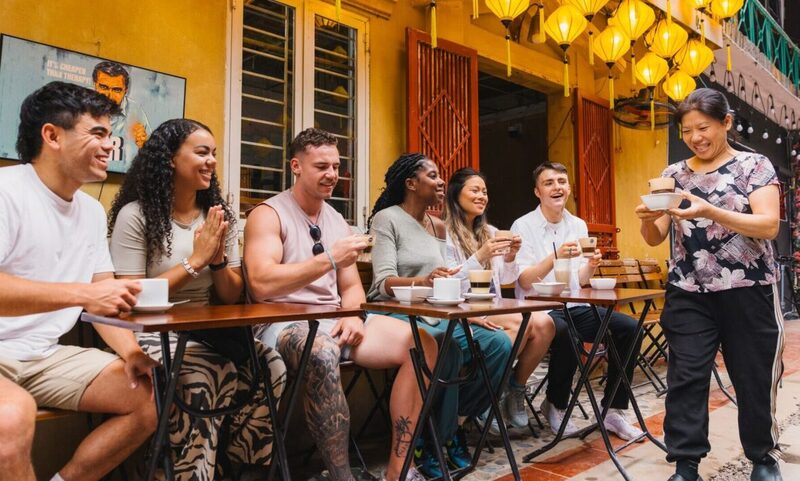
From bustling cities to tranquil coasts, Vietnam challenges you to slow down, observe, and adapt. Morning markets, neighborhood cafes, and friendly encounters gradually reveal the heart of daily life.
Over time, these experiences, small yet meaningful, become the very things expats slowly learn to love in Vietnam—creating a connection that goes beyond convenience, routines, or initial impressions.
Love in Vietnam: The Subtle Joys and Hidden Gems
Love in Vietnam extends far beyond surface-level attractions—it unfolds gradually, rewarding those who immerse themselves fully. Many expats initially notice the obvious perks: affordability, flavorful cuisine, and convenient amenities. Yet the deeper affection grows from subtle, everyday experiences that shape life abroad.
1. Everyday Life and Small Rituals
For most expats, love in Vietnam begins with simple routines. Morning strolls along a quiet lake, savoring a steaming bowl of pho from a corner eatery, or sharing coffee with neighbors, gradually transform into meaningful rituals. These repeated moments cultivate comfort and connection, revealing the understated joys that make life in Vietnam uniquely satisfying.
2. Community and Connections
The expat community in Vietnam plays a crucial role in settling in. Social networks, local friendships, and co-working spaces go beyond networking—they become a support system. Participating in hobby groups, volunteering, or attending language exchanges nurtures lasting bonds.
Local culture for expats may start with polite gestures, but consistent engagement transforms acquaintances into chosen family. Over time, these relationships define the emotional core of living in Vietnam.
Read more: Local Friendships That Changed Expats’ Lives in Vietnam
3. Hidden Gems and Exploration
Life outside urban centers introduces hidden gems in Vietnam for expats, from serene coastal towns to mountain retreats and tucked-away cafes. Exploring off-the-beaten-path destinations not only refreshes the mind but also deepens one’s connection to the country. Discovering a tranquil riverside village, a vibrant street-food corner, or a quiet hillside café becomes a cherished part of daily life—one of the many reasons expats slowly come to love Vietnam fully.

Read more: Why Expats Fall in Love with Vietnam
Navigating Challenges with Perspective
Long-term life abroad comes with unavoidable challenges. Visa renewals, language barriers, and cultural differences can frustrate newcomers. Settling in Vietnam as an expat requires patience, curiosity, and a willingness to embrace local customs while approaching bureaucracy strategically.
Expat life teaches resilience: obstacles become opportunities for growth, and lessons learned gradually deepen appreciation for daily life. By leaning into these experiences rather than resisting them, newcomers discover the subtleties that make Vietnam uniquely lovable—from friendly local interactions to the rhythms of everyday life that slowly become the heart of what expats love in Vietnam.
Read more: The Most Common Culture Shocks for New Expats in Vietnam
What Expats Slowly Learn to Love in Vietnam: Lifestyle and Living
1. Housing and Neighborhoods
Where you choose to live shapes your entire expat journey, vibrant cities like Ho Chi Minh City or Hanoi attract professionals seeking career growth and cultural immersion, while coastal hubs like Da Nang offer slower-paced lifestyles ideal for remote work or retirement.
Understanding neighborhood nuances—proximity to schools, markets, and expat-friendly services—creates comfort, convenience, and a growing sense of belonging, making daily life feel seamless.
Read more: Finding “Home” Far Away: Real Stories from Tenants
2. Food and Culinary Culture
Vietnamese cuisine is central to everyday joy. From bustling street vendors to refined dining spots, the freshness, variety, and bold flavors are unforgettable. Many expats come to cherish the ritual of a morning bánh mì, a late-night bowl of bún, or sharing a coffee with neighbors.
Food here is more than sustenance—it’s a cultural touchstone that brings life, connection, and delight to ordinary days.
3. Daily Rituals and Transportation
Mastering local routines—navigating motorbike traffic, understanding markets, or anticipating cultural quirks—may feel daunting at first. Over time, these small, intentional rituals become second nature. Experiences like using public transport, chatting with vendors, or discovering hidden neighborhood gems gradually shape life abroad and contribute to what expats slowly learn to love in Vietnam.

4. Work-Life Integration
Professional growth, international networks, and entrepreneurial energy coexist with grounded daily life. Balancing ambition with well-being—through weekend escapes, quiet riverside walks, or corner café visits—teaches expats to savor life’s subtleties. These mindful choices turn ordinary days into meaningful experiences, reinforcing the deep appreciation that comes from living in Vietnam fully.
Read more: Expat Couples in Vietnam: Love, Work & Life Together
Health, Wellness, and Peace of Mind
Healthcare is a top priority for expats in Vietnam. While public hospitals exist, most long-term residents rely on private clinics or international hospitals like FV Hospital, Raffles Medical, and Vinmec, where English-speaking staff provide reliable care. Choosing the right health insurance ensures peace of mind, allowing expats to focus on life, not paperwork.
Wellness goes beyond medical care. Daily routines, exercise, and exploring parks or riversides foster balance and joy. Activities like yoga, cycling, or simple walks cultivate a mindful lifestyle, strengthening the emotional connection to the country. Over time, these practices become part of the subtle experiences that help expats slowly fall in love with Vietnam.
Read more: Healthcare in Vietnam for Expats: Insurance & Hospital TipsCulture, Festivals, and Everyday Joys
Local culture in Vietnam is immersive and layered, offering expats rich experiences. Festivals like Tết, Mid-Autumn, and regional celebrations bring vibrant traditions and communal energy. Participating or observing gradually helps expats feel part of the social fabric.
Beyond grand events, everyday joys quietly enrich life: bustling morning markets, friendly shopkeepers, street performances, or the hum of scooters at sunset. These small, repeated moments accumulate, deepening connection and understanding. Over time, they become the subtle treasures that make expats slowly fall in love with Vietnam, revealing its true rhythm and charm.
Read more: Everyday Joys of Living in Vietnam
Language and Learning
Mastering Vietnamese rarely happens overnight, but even small efforts are richly rewarded. Using basic phrases, practicing greetings, or learning local idioms opens doors to friendships and deeper cultural understanding.

Over time, expats discover that language is more than communication—it’s a bridge to belonging, respect, and meaningful daily interactions. These subtle insights become part of the experiences that help expats slowly fall in love with Vietnam, enriching both life and connection in their new home.
Long-Term Impact: Belonging and Perspective
Over time, expats notice a subtle but profound shift—Vietnam stops being just a temporary location and becomes home. Love in Vietnam evolves from a series of enjoyable moments to a lived, felt experience, woven into daily routines, friendships, and personal growth.
This shift in perspective—embracing local rhythms, valuing connection, and appreciating cultural depth—defines long-term satisfaction. There isn’t a single reason why expats fall in love with Vietnam; it’s the cumulative effect of countless small, intentional choices, repeated over time, that gradually turn everyday life into something deeply meaningful.
Read more: How Expats Redefine “Belonging” While Living in Vietnam
Final Thoughts: Love in Vietnam Is Built Slowly
For expats willing to immerse themselves, every challenge becomes an opportunity, every routine a ritual, and every connection a source of belonging. Love in Vietnam grows gradually through curiosity, engagement, and consistency—it doesn’t appear overnight.
From shared meals to hidden corners, from friendships to festival celebrations, the moments expats slowly learn to love transform a temporary stay into a lasting chapter. Whether seeking career growth, raising a family, or building a meaningful life abroad, Vietnam offers depth, warmth, and discovery.
With guidance from JHouse, finding the right home and navigating daily life becomes simpler, creating space to focus on what truly matters. Love in Vietnam isn’t just an idea; it’s a lived experience, unfolding with patience, openness, and heart.
JHouse Content Team
The in-depth content development team on housing services for foreigners & Vietnamese in Vietnam. The content is simple, easy to understand, and logically arranged to bring readers useful topics and information from real experiences.
How Expats Redefine “Belonging” While Living in Vietnam
Expat Life in Vietnam: Finding a True Sense of Belonging
Belonging while living in Vietnam rarely arrives with a visa stamp or a signed lease. For many expats, the hardest part isn’t adjusting to a new country—it’s living in the in-between, where daily life works, but still feels temporary.
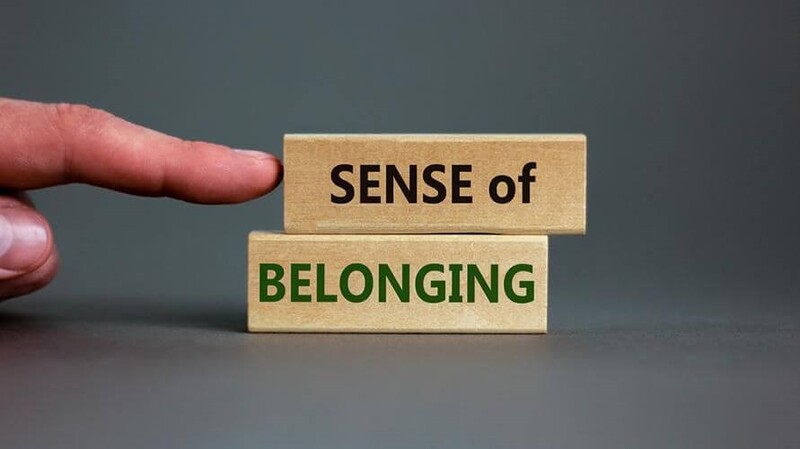
Vietnam draws people in with opportunity, affordability, and cultural depth. Yet what ultimately determines whether expats stay long-term isn’t convenience or comfort. It’s whether life begins to feel anchored.
This article explores how expats redefine belonging while living in Vietnam—how the shift from “being based here” to “being part of here” quietly unfolds. Through mindset changes, local connections, everyday routines, and long-term choices, belonging emerges not as a destination but as a form of participation. Less about where you live—and more about how you show up.
From Arrival to Awareness: When “Living Abroad” Stops Feeling Temporary
Most expats arrive in Vietnam with an unspoken timeline. Six months. One year. Maybe two. There’s often a quiet belief that real life will resume somewhere else. Early choices reflect that assumption—short-term housing, flexible commitments, friendships kept intentionally light.
Then, almost without noticing, awareness replaces arrival.
Daily life stops feeling provisional. Familiar streets no longer need translating. A café remembers your order. Routines form without constant comparison to “home.” This is often the first signal that expat life in Vietnam is shifting—from exploration to establishment.
Belonging doesn’t begin with permanence; it begins with presence. When expats stop measuring their lives against another country and start engaging with Vietnam on its own terms, the experience feels less fragmented. The question quietly changes—from How long will I stay? to How do I want to live while I’m here?
That shift is where emotional grounding begins.
Read more: The Turning Point: Why Expats Stay Long-Term in Vietnam
Belonging while living in Vietnam: A Shift in Mindset
Belonging while living in Vietnam isn’t about replacing one identity with another—it’s about allowing your sense of self to expand. For many expats, the real turning point comes when they stop trying to recreate their former lifestyle abroad. Imported routines, rigid expectations, and constant nostalgia often keep life feeling temporary.
Belonging grows when expats begin adapting their rhythms instead. This means accepting that comfort looks different overseas, letting go of efficiency as the sole measure of what’s “working,” and recognizing that integration is relational rather than transactional. Trust, in Vietnam, is built through consistency more than speed.

As this mindset shifts, so does the experience of daily life. Instead of asking how Vietnam can fit into their existing framework, expats begin adjusting themselves to Vietnam’s flow. That’s when life stops feeling like an extended stay—and starts feeling genuinely lived.
Read more: Expat Life in Vietnam: Real Stories and InsightsEveryday Life as the Foundation of Belonging
Belonging is rarely created through grand moments. More often, it forms quietly through ordinary ones. Shopping at the same market each week. Exchanging greetings with neighbors in the elevator. Running daily errands without hesitation. These small repetitions are what transform an unfamiliar place into something dependable.
Everyday life in Vietnam naturally supports this shift. Dense neighborhoods, visible street life, and a culture of informal interaction make complete isolation difficult. Even brief exchanges—shared meals, casual conversations, familiar faces—create a sense of continuity over time.
For expats in Vietnam, these patterns gradually reduce emotional friction. Life feels less performative and more participatory. The city stops acting as a temporary backdrop and begins functioning as a shared environment. This is often when expats realize that belonging doesn’t require full cultural fluency—only consistent presence.
Read more: Everyday Joys of Living in Vietnam
The Role of Community Connections and Local Friendships
No expat builds a sense of belonging alone.
Community connections—both expat and local—shape whether life abroad feels supported or isolating. In the early stages, most expats lean on familiar networks: colleagues, international communities, and online groups. These spaces offer reassurance and shared reference points during adjustment.
But deeper belonging often begins when local friendships enter daily life.
In Vietnam, these relationships rarely start with emotional openness. They grow through reliability—showing up consistently, respecting boundaries, and engaging without urgency. Trust is built through presence more than explanation.
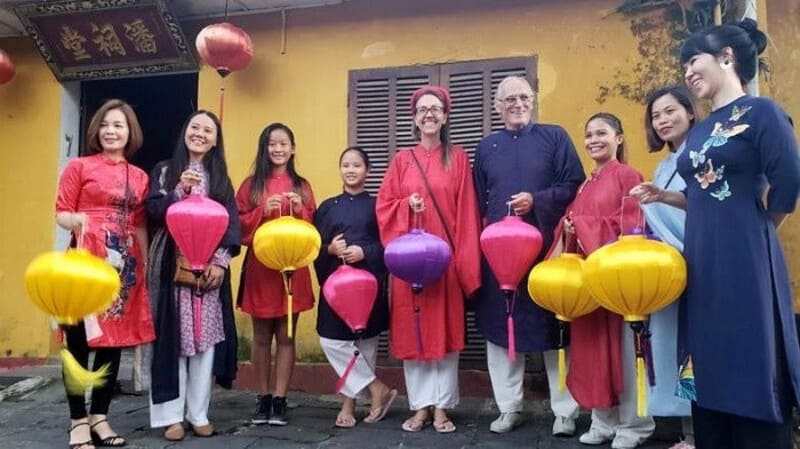
Over time, local connections quietly change how expats experience the country. Language gaps feel less intimidating. Cultural differences become navigable rather than exhausting. Vietnam shifts from something to be decoded into a community to participate in. For many long-term residents, local friendships mark the moment Vietnam truly feels like home.
Read more: Local Friendships That Changed Expats’ Lives in Vietnam
Redefining “Home Away from Home”
For expats, the idea of home away from home doesn’t stay fixed.
In the beginning, home is built from familiarity—imported routines, familiar food, a language that requires no effort. But as belonging while living in Vietnam deepens, home becomes less about resemblance and more about resonance. It’s defined by how daily life feels, not how closely it mirrors the past.
This shift often appears in housing choices. Temporary rentals give way to intentional homes. Neighborhoods are selected for livability rather than convenience alone—access to markets, green spaces, schools, and social rhythms begins to matter.
Expat life in Vietnam moves from optimization to alignment. Housing supports lifestyle. Lifestyle supports relationships. And over time, those relationships redefine what home truly means.
Read more: Finding “Home” Far Away: Real Stories from Tenants
Living Long-Term in Vietnam: When Belonging Shapes Decisions
Belonging reshapes how expats make long-term choices.
As life in Vietnam stabilizes, decisions begin to extend forward. Career plans feel less provisional. Housing becomes permanent. Families settle. Conversations shift quietly—from if I stay to now that I’m here. Belonging turns time from something counted into something assumed.
Challenges don’t disappear. Bureaucracy, cultural friction, and distance from family remain part of daily life. But they no longer feel disqualifying. They become manageable trade-offs within a life that otherwise works.
Many long-term expats describe this phase as grounded. Life feels less experimental and more intentional. Vietnam may not be perfect, but it feels livable—emotionally, practically, and sustainably. At this point, belonging stops being a feeling and becomes a direction.
Belonging Beyond Nationality and Language
For many expats, one of the deepest realizations is that belonging isn’t anchored to nationality or perfect language skills.

While fluency helps, it isn’t a prerequisite for connection. Belonging often grows through shared participation—sports groups, volunteering, creative projects, parenting circles, or everyday neighborhood life. In these spaces, presence matters more than performance.
Vietnam’s relationship-centered social culture makes this possible. Expats aren’t expected to fully assimilate to be accepted. What matters is respectful, consistent engagement over time.
Gradually, identity becomes layered rather than divided. Expats don’t lose where they’re from—they gain where they are. Belonging expands without erasing origin.
This is belonging that transcends borders, language, and labels.
Why Feeling at Home Abroad Takes Time—and Why That’s Okay
Belonging abroad rarely arrives all at once, and it almost never follows a straight line.
There are stretches of doubt. Periods of isolation. Moments when cultural fatigue makes everything feel heavier than it should. These experiences aren’t signs of failure—they’re part of the adjustment. Many expats who eventually feel at home in Vietnam recall at least one point when leaving felt like a real option.
What matters isn’t avoiding discomfort, but having enough support, clarity, and self-awareness to move through it.
Feeling at home abroad isn’t about erasing difficulty. It’s about building enough social, emotional, and practical stability that discomfort no longer defines the experience. Belonging grows slowly—but over time, it compounds into something steady and real.
Read more: Things Expats Slowly Learn to Love in VietnamThe Quiet Indicators of Belonging
Belonging rarely announces itself. It shows up in small, unexamined choices—choosing local solutions without hesitation, explaining Vietnam to friends back home with nuance rather than defense, planning months ahead without keeping an exit in mind. It’s not about idealizing the country, but understanding it well enough to live within its realities.
For many expats, the realization arrives unexpectedly: when the idea of leaving Vietnam feels heavier than the decision to stay.
At that point, belonging is no longer something being sought. It has quietly become a condition—felt, lived, and assumed.
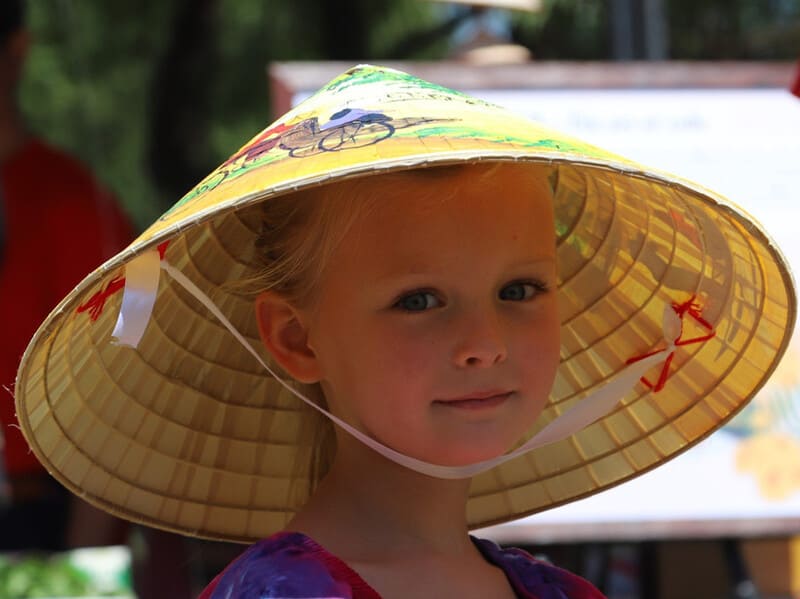
Read more: Funny & Unexpected Moments When Living in HCMC
Final Thoughts: When Living in Vietnam Becomes Being Part of It
Belonging while living in Vietnam isn’t a destination—it’s a process shaped by time, intention, and participation. It grows through everyday routines, community connections, and the willingness to adapt without erasing who you are.
For many expats who stay, Vietnam becomes more than a chapter abroad. It becomes a place where identity expands, life stabilizes, and the future feels grounded again. Belonging doesn’t require perfection. It requires presence—and the right conditions to sustain it.
That’s where practical support quietly matters. At JHouse, we work with expats who are building lives, not just finding apartments. By helping people create stable living foundations, we support the deeper process of settling in.
When life feels anchored, belonging follows naturally. And Vietnam becomes not just where you live—but where you truly belong.
JHouse Content Team
The in-depth content development team on housing services for foreigners & Vietnamese in Vietnam. The content is simple, easy to understand, and logically arranged to bring readers useful topics and information from real experiences.
The Turning Point: Why Expats Stay Long-Term in Vietnam
Why Expats in Vietnam Choose Long-Term Living
Long-term decisions rarely arrive overnight. For many foreigners, the choice to stay long-term in Vietnam begins quietly — when the excitement of arrival fades, routines take shape, and daily life no longer feels temporary. Vietnam shifts from a place to experience into a place to build, where careers deepen, relationships grow, and personal rhythms finally settle.

At JHouse, we work closely with expats standing at this exact crossroads. Some arrive on one-year contracts. Others come simply to explore Southeast Asia. Yet over time, many face the same question: Is this still just a stop — or could it become home?
This article explores why that turning point happens, and what truly leads expats to stay long-term in Vietnam.
The Turning Point: From Temporary Stay to Long-Term Commitment
Every expat experiences Vietnam differently, yet many who choose long-term living in Vietnam describe the same internal shift. The early months are about survival and adaptation — visas, housing, traffic, and learning how things work. Over time, familiarity replaces friction. Then, almost quietly, intention emerges.
This turning point is rarely sparked by a single moment. Instead, it forms through accumulation: stable work, meaningful friendships, a café that remembers your order, or the realization that life here feels balanced rather than rushed. Gradually, short-term thinking gives way to long-term planning.
At that stage, expats stop asking “How long will I stay?” and begin asking “How do I build a better life here?” That question marks the true beginning of long-term living in Vietnam.
Read more: What Changes When Expats Work and Live in VietnamWhy Expats Stay Long-Term in Vietnam
To understand why expats stay long-term in Vietnam, it helps to look beyond surface-level advantages. Affordability and climate may draw people in, but they rarely explain why someone chooses to remain. Long-term commitment grows from alignment — when lifestyle, personal values, and opportunity begin to reinforce one another instead of competing for attention.
1. A Lifestyle That Balances Ambition and Ease
Vietnam offers something increasingly rare in modern cities: momentum without constant pressure. In hubs like Ho Chi Minh City and Hanoi, professionals find career growth, international networks, and entrepreneurial energy. Yet daily life remains grounded. Meals are shared, neighborhoods feel lived in, and time moves at a human pace.
For many expats in Vietnam, this balance becomes the deciding factor. Work still matters, but it no longer consumes everything. Life expands beyond the office, easing the burnout that often follows high-pressure environments elsewhere. This balance makes long-term living in Vietnam feel sustainable rather than exhausting.

2. Cost of Living That Supports Long-Term Stability
The cost of living in Vietnam further strengthens this decision. Housing, food, transportation, and essential services remain accessible compared to many global cities. This financial breathing room reduces stress and restores choice — whether that means saving, investing, or simply living with greater intention.
Importantly, affordability alone isn’t the goal. What truly matters is what it enables: flexibility, security, and the freedom to build a long-term life in Vietnam without constant compromise.
Read more: Why Expats Fall in Love with Vietnam
Building a Long-Term Life in Vietnam Through Connection
One of the strongest reasons expats choose to stay long-term in Vietnam is connection. Without it, even the most comfortable lifestyle can feel temporary — efficient, yet emotionally unfinished.
1. Community Connections That Create Belonging
Over time, expats discover that Vietnam is deeply relational. Trust grows through consistency rather than speed. Local friendships often begin with simple gestures — a daily greeting, a small favor, a shared routine — but they can grow into reliable support systems that quietly shape everyday life.
Expat communities also play an essential role, especially in the early stages. Co-working spaces, neighborhood groups, and social networks offer familiarity when everything feels new. Over time, these circles evolve into anchors, helping newcomers transition from short-term residents into people who feel rooted.
Belonging rarely arrives instantly. But once it takes hold, the idea of leaving starts to feel less certain.
Read more: Local Friendships That Changed Expats’ Lives in Vietnam
2. Cultural Integration Over Cultural Perfection
Long-term expats don’t stay because life is effortless. They stay because they learn how to adapt. Cultural integration in Vietnam is less about fluency or perfection and more about rhythm, respect, and patience. As expectations shift, frustrations soften. Every day challenges become stories — and stories become attachment. This mindset shift often marks the decision to stay in Vietnam long-term.
Read more: The Most Common Culture Shocks for New Expats in Vietnam
Housing as a Turning Point for Long-Term Living
One of the clearest signs that expats intend to stay long-term in Vietnam is how they approach housing. Over time, short-term rentals and convenience-driven choices lose their appeal. What matters instead is fit.

The question shifts from “What’s available now?” to “What supports the life I want to build?” Neighborhoods begin to matter. Natural light, noise levels, walkability, and community become daily priorities rather than afterthoughts.
At JHouse, we see this transition every day. When expats search for homes that reflect who they are — not just where they are — intention becomes visible. A well-chosen home creates stability, grounding daily life and turning the emotional decision to stay into something tangible.
Read more: Finding “Home” Far Away: Real Stories from Tenants
Quality of Life in Vietnam: A Long-Term Perspective
Viewed through a long-term lens, the quality of life in Vietnam reveals why many choose to stay long-term in Vietnam. Healthcare access, education options, digital infrastructure, and transportation continue to improve — particularly in major cities.
For families, international schools, family-friendly neighborhoods, and a culture that values togetherness offer reassurance beyond the early years. For remote workers and creatives, flexible lifestyles and inspiring surroundings support both productivity and balance.
What matters most is not perfection, but progress. Expats staying long-term in Vietnam recognize that growth is ongoing — and they choose to grow alongside the country, rather than wait for conditions to be flawless.
Read more: Everyday Joys of Living in Vietnam
Overcoming Doubts Before Staying Long-Term in Vietnam
Every turning point brings hesitation. Before choosing to stay long-term in Vietnam, many expats wrestle with familiar questions:
- Can I build a future here?
- What about healthcare, education, or aging?
- Will life still feel fulfilling years from now?
These doubts are natural. Long-term expats don’t eliminate uncertainty — they manage it. By building support systems such as professional networks, reliable housing, health coverage, and local knowledge, uncertainty gradually becomes manageable.
As these foundations fall into place, confidence replaces doubt. Staying long-term stops feeling like a leap of faith and begins to feel like the most logical next step.
The Role of Intention in Long-Term Living
Choosing to stay long-term in Vietnam is ultimately an intentional act. It marks a shift from consumption to contribution — engaging with local communities, respecting cultural context, and shaping a daily life with purpose.

Expats who remain are not simply comfortable; they are invested. They stop waiting for life to begin somewhere else and start building it where they are. This change in mindset often reshapes identity, not just routine.
Intention is what transforms long-term living in Vietnam from a practical decision into a personal commitment — and from a place you reside into a place you truly call home.
Read more: Expat Life in Vietnam: Real Stories and InsightsFinal Thoughts: When Staying Becomes Belonging
There comes a moment when staying long-term in Vietnam no longer feels like a decision — it feels natural. Daily life settles into a rhythm. Relationships deepen. Plans extend beyond visas and contracts, measured instead by milestones, routines, and shared memories. This is the true turning point, when presence replaces uncertainty.
Choosing to stay long-term in Vietnam is not about giving something up. It is about alignment — between work and life, independence and community, ambition and balance. At JHouse, we support expats through this transition, helping transform short stays into stable foundations and uncertainty into clarity.
Vietnam may begin as a chapter. For many, with intention and support, it becomes home — not temporarily, but fully.
JHouse Content Team
The in-depth content development team on housing services for foreigners & Vietnamese in Vietnam. The content is simple, easy to understand, and logically arranged to bring readers useful topics and information from real experiences.
What Expats Wish They Knew Before Moving to Vietnam
Living in Vietnam: What Expats Wish They Knew Before Moving
Moving to Vietnam is more than a relocation — it’s a long-term life decision that reshapes how you work, connect, and define “home.” For many expats, the excitement of new food, vibrant cities, and a lower cost of living often overshadows the quieter realities of living in Vietnam: uncertainty, cultural friction, and the small daily decisions that slowly add pressure over time.

What follows after arrival are lessons no checklist truly prepares you for — about mindset, housing, community, and navigating expat life in Vietnam beyond the honeymoon phase.
This guide brings together what expats wish they knew before moving to Vietnam — not as warnings, but as grounded clarity. If you’re preparing for life here, these insights help turn uncertainty into confidence and relocation into a place that genuinely feels like home.
A Mindset Shift Before Moving to Vietnam: From Arrival to Belonging
The most important preparation for moving to Vietnam isn’t logistical — it’s mental. Many expats arrive comparing everything to “back home,” expecting daily life to function the same way. When it doesn’t, frustration quietly builds.
Living in Vietnam works best when you stop recreating your old life and start intentionally redesigning it. Daily rhythms move differently. Communication is more indirect. Progress comes through relationships, not urgency. These shifts often trigger culture shock in Vietnam — not because something is wrong, but because expectations haven’t adjusted yet.
Expats who settle well long-term ask better questions early:
- What kind of life am I building here?
- Am I seeking comfort, growth, or reinvention?
- How much am I willing to adapt?
Answering these honestly transforms expat life in Vietnam from constant adjustment into genuine belonging.
Read more: Why Expats Fall in Love with VietnamMoving to Vietnam: What No One Tells You About Legal Stability
Moving to Vietnam legally isn’t just paperwork — it’s a long-term strategy. Many first-time expats underestimate how deeply visa decisions affect everyday life, from opening a bank account to renting an apartment in Vietnam
Common pathways include:
- Work visa (LD) with a work permit
- Investor visas for business owners
- Family visas (TT) for dependents
- Temporary Residence Cards (TRC) for longer stability
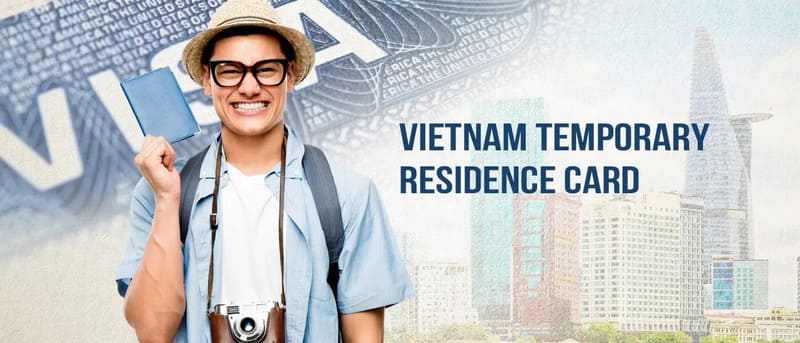
What expats often wish they knew earlier is that short-term visa fixes create long-term stress. Frequent renewals, shifting eligibility rules, and sudden policy changes can quietly disrupt work, housing, and peace of mind.
Experienced expats prioritize legal clarity early, often working with licensed agents to avoid future roadblocks. In the end, legal stability becomes the invisible backbone of long-term living in Vietnam — supporting every decision that follows.
Read more: Long-Term Visa, Work Permit & TRC in Vietnam: What You Need to KnowChoosing Where to Live Shapes How You Live
Vietnam offers dramatically different lifestyles depending on the city and neighborhood you choose. Many expats arrive assuming cheaper rent equals better value, only to discover that living in Vietnam, location shapes daily happiness far more than apartment size.
- Ho Chi Minh City supports ambitious professionals and families seeking career momentum and international schools.
- Hanoi attracts educators and culture-seekers drawn to heritage and a more reflective pace.
- Da Nang appeals to remote workers, balancing beach life with affordability.
- Hoi An and Da Lat offer calm for creatives — with trade-offs in healthcare access and job options.
Experienced expats treat their first months as a scouting phase. Short-term rentals help you test traffic, noise, and community fit before committing — a small step that protects long-term quality of life.
Read more: Finding “Home” Far Away: Real Stories from TenantsHousing in Vietnam: What Expats Learn the Hard Way
Housing in Vietnam is flexible — but rarely straightforward. Many expats only realize after moving in that renting an apartment in Vietnam involves unwritten rules. Key lessons include:
- Verbal promises don’t replace written contracts
- Maintenance responsibility should be clearly defined
- Furnishing quality varies widely
- Agent representation matters more than listings
Housing options range from serviced apartments and modern condos to shared housing and family villas. The right home reduces daily friction and supports stability; the wrong one quietly amplifies stress and uncertainty.
At JHouse, we help expats navigate housing in Ho Chi Minh City beyond listings — clarifying terms, protecting tenants, and ensuring each home supports long-term living rather than short-term convenience.
Read more: Lessons Learned from First-Time Renters in Vietnam
Cost of Living in Vietnam: Affordable Doesn’t Mean Automatic
Yes, the cost of living in Vietnam is lower than in many Western countries — but affordability without planning often leads to lifestyle creep.

Rent, utilities, food, transportation, and healthcare can feel manageable at first, yet what expats underestimate are the irregular costs: visa renewals, imported goods, weekend travel, or private medical care.
Living in Vietnam comfortably requires budgeting with buffers, not just monthly estimates. Expats who thrive long-term don’t spend minimally — they spend intentionally, building flexibility into their finances so daily life stays sustainable, not stressful.
Read more: Long-Term Budgeting in Vietnam: Monthly Costs & Smart Saving Tips
Healthcare in Vietnam: Plan Beyond Emergencies
Healthcare in Vietnam has improved rapidly, especially in major cities, but most expats rely on private hospitals for English-speaking doctors and consistent service quality.
Facilities like FV Hospital, Family Medical Practice, Raffles Medical, and major private networks are widely trusted — yet visits often require upfront payment, typically $30–$60 per consultation.
This is why health insurance isn’t just for emergencies; it’s a foundation for long-term living. Choosing between international coverage and local expat-focused plans depends on travel habits, family needs, and risk tolerance. Many long-term expats wish they had planned insurance early — before uncertainty forced rushed decisions.
Read more: Healthcare in Vietnam for Expats: Insurance & Hospital TipsDaily Life Infrastructure: Banking, Connectivity, and Convenience
Daily life in Vietnam becomes noticeably smoother once essential systems are in place. Opening a local bank account enables access to digital wallets like Momo and ZaloPay, which power most everyday transactions. While requirements are straightforward — a passport, a valid visa or TRC, and proof of address or employment — many expats delay this step and feel the friction quickly.
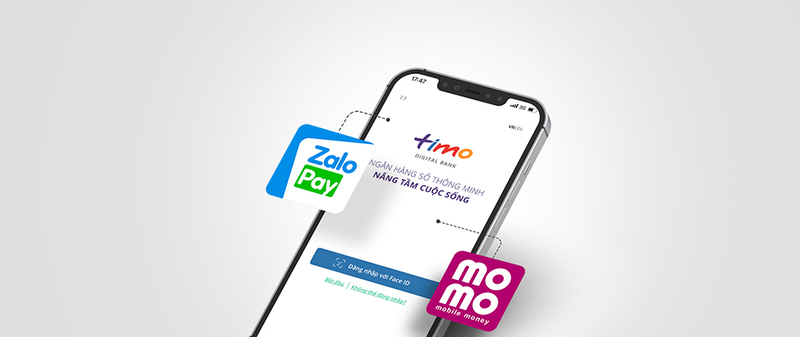
Internet and mobile connectivity are reliable, but staying too long on temporary SIMs often disrupts work and routines. Installing home internet and postpaid plans supports stability.
Integration isn’t about getting by with minimal setup — it’s about building systems that quietly support real life.
Culture Shock in Vietnam Is Subtle — and Cumulative
Culture shock in Vietnam rarely hits all at once. It builds quietly through small, repeated moments — indirect communication, slow bureaucracy, constant noise, or different expectations around time. Over weeks, these details can create unexpected fatigue.
What helps most is a shift in response:
- Curiosity instead of comparison
- Humor during misunderstandings
- Asking questions rather than assuming intent
- Building local relationships
Expats who adapt best treat cultural differences as information, not obstacles — and over time, what once felt draining often becomes familiar, even comforting.
Read more: The Most Common Culture Shocks for New Expats in Vietnam
Community Is the Difference Between Staying and Thriving
Many expats underestimate loneliness. You can live comfortably in Vietnam — with good housing and routine — and still feel disconnected. Finding community transforms experience:
- Online groups offer information and events
- Coworking spaces foster professional networks
- Apps like Meetup and InterNations support social connections
- Hobby groups create deeper bonds
Consistency matters more than charisma. Simply showing up, week after week, turns familiar faces into real support systems.
Long-term life in Vietnam isn’t sustained by convenience alone — it’s sustained by connection, shared experiences, and the feeling that you don’t have to navigate everything on your own.

Read more: Local Friendships That Changed Expats’ Lives in Vietnam
Final Thoughts: What Expats Learn After Moving to Vietnam
Moving to Vietnam teaches more than logistics. It reshapes how you adapt, how you relate to others, and how intentionally you design everyday life. The things expats wish they knew earlier aren’t mistakes — they’re milestones of learning.
Life here rewards those who prepare thoughtfully, ask for guidance, and stay open as expectations evolve. Vietnam doesn’t demand reinvention; it invites clarity about what truly matters.
At JHouse, we work with expats who are building lives, not just securing apartments. By simplifying housing decisions and sharing grounded local insight, we help create the stability that allows long-term living in Vietnam to feel confident, sustainable, and deeply personal.
Let Vietnam be more than a move. Let it become home — by choice, not by chance.
JHouse Content Team
The in-depth content development team on housing services for foreigners & Vietnamese in Vietnam. The content is simple, easy to understand, and logically arranged to bring readers useful topics and information from real experiences.
Everyday Joys of Living in Vietnam
Daily Life in Vietnam: The Simple Joys of Living Well
For many expats, living in Vietnam starts as a practical choice — a new job, a fresh start, or a temporary move.
But the real reward emerges in the quiet, everyday moments that make a foreign country feel like home: sipping morning coffee on bustling streets, discovering your favorite local eateries, or greeting familiar faces on the way to work. Beyond visas, housing, and logistics, it’s these small, consistent joys that define daily life in Vietnam.
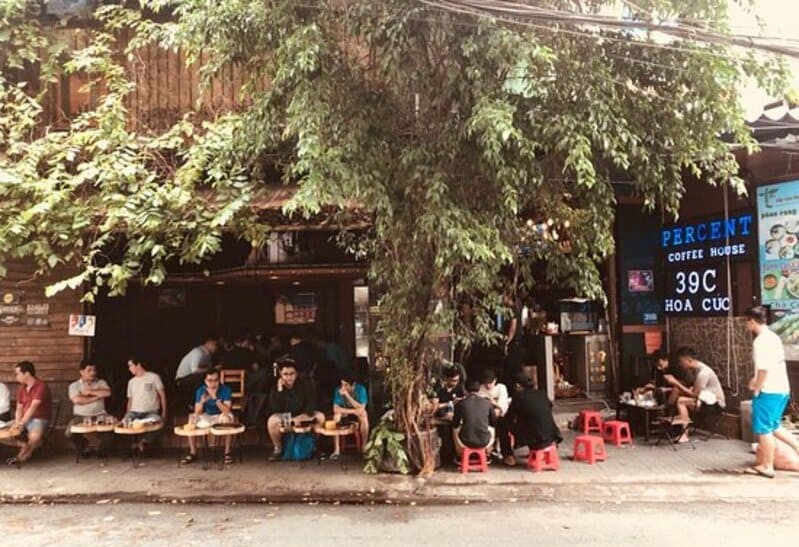
This article dives into what makes life here uniquely fulfilling — from simple routines and rich local culture to community bonds and emotional belonging — showing how ordinary days can turn into genuinely meaningful experiences for expats building long-term lives.
A Different Rhythm: Slowing Down Without Falling Behind
One of the first things expats notice about daily life in Vietnam is its unique rhythm. Days start early with streets alive with coffee vendors and breakfast stalls, then soften in the afternoon before spilling into lively sidewalks and shared spaces by evening.
For newcomers from highly structured cultures, this pace can feel chaotic or inefficient. Yet over time, many discover a surprising joy: life feels less rushed, yet more complete. You learn to adjust expectations without sacrificing productivity. Meetings may start late, but friendships, conversations, and moments of presence begin early.
This understated tempo is one of the most rewarding aspects of lifestyle in Vietnam, creating space for reflection, meaningful connections, and a sustainable work-life balance that many expats didn’t even know they were missing.
Read more: Expat Life in Vietnam: Real Stories and InsightsLiving in Vietnam: Finding Comfort in Everyday Routines
Long-term happiness abroad isn’t built on grand moments; it thrives in repetition. Living in Vietnam becomes smoother — and unexpectedly joyful — once daily routines fall into place.
That could look like ordering the same iced coffee each morning without explanation, mastering alley shortcuts to avoid traffic, or exchanging friendly greetings with familiar faces at local markets. These small, consistent practices reduce friction, turning a foreign city into a functional, welcoming home.
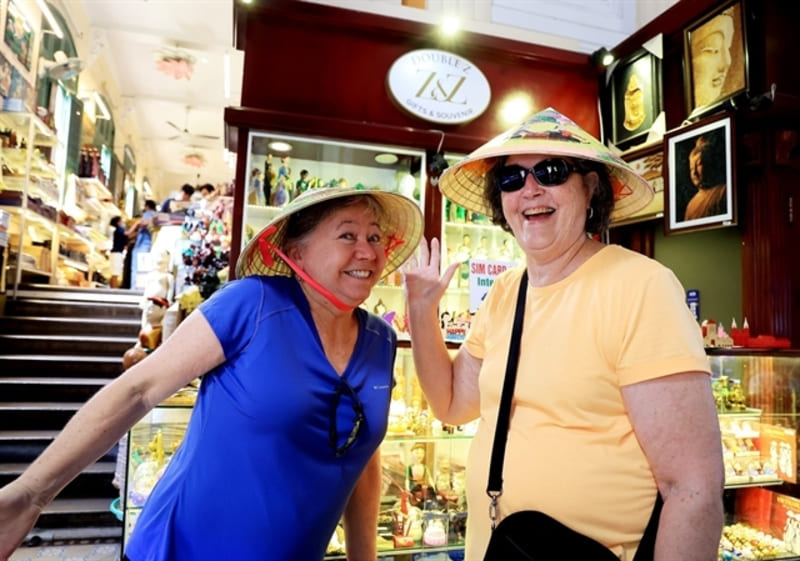
For expats, this stability is transformative. Every day life in Vietnam stops feeling like a constant adjustment and starts to feel intuitive. The mental energy once devoted to navigating uncertainty now fuels creativity, deepening relationships, and long-term planning, revealing the subtle, sustaining joys that make life abroad truly fulfilling.
Read more: Why Expats Fall in Love with Vietnam
Food as a Daily Joy, Not a Special Occasion
In daily life in Vietnam, food isn’t reserved for special occasions — it’s a constant, accessible pleasure. For expats, this can be a revelation: fresh, flavorful meals appear on every corner, affordable and seamlessly woven into routines
Street food isn’t a compromise; it’s a social equalizer. Office workers, students, families, and retirees eat side by side, creating spontaneous moments of connection. Over time, many expats stop planning meals and instead simply participate, enjoying the rhythm of local eating habits.
From warm breakfasts that require no cooking to shared lunches sparking conversation, and seasonal dishes that mark time naturally, these simple rituals provide consistent, subtle joy. For long-term residents, this is one of the clearest ways expat life in Vietnam offers daily nourishment, comfort, and a sense of belonging — proving that sometimes, happiness truly is found in the ordinary.
Community Without Formality
For many expats, the hardest part of relocating is feeling connected. In Vietnam, communities often form organically, without strict planning. Sidewalk seating, shared elevators, neighborhood shops, and casual greetings create countless low-stakes interactions that gradually build familiarity.
Over time, you’re recognized, remembered, and welcomed — a sense of belonging emerges almost effortlessly. Local culture in Vietnam quietly supports integration: relationships may begin with simple gestures, not deep conversation, but consistency fosters trust. Language fluency isn’t a requirement; showing up regularly is enough.
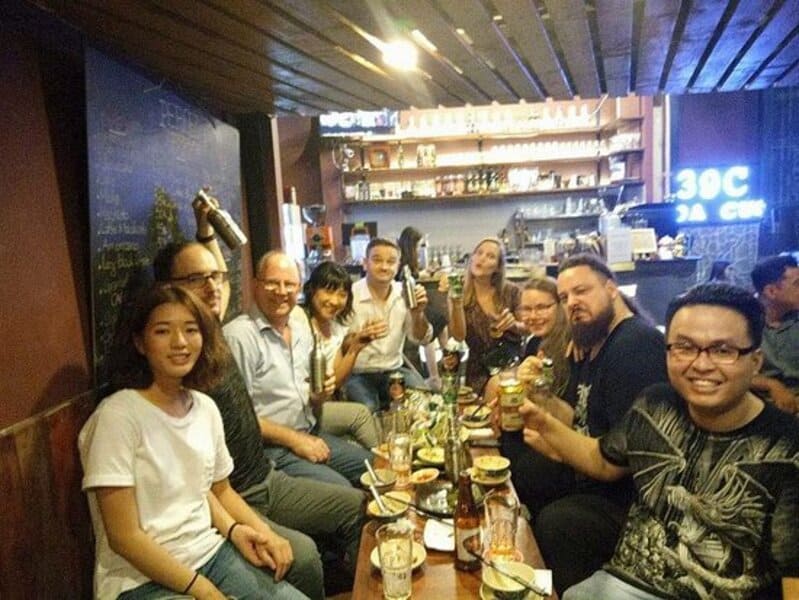
For those who felt lonely or isolated at first, this understated network often becomes a turning point. The joy lies not in constant socializing, but in knowing you are woven into the daily fabric of your neighborhood, fully part of life in Vietnam.
Read more: Local Friendships That Changed Expats’ Lives in Vietnam
Work-Life Balance That Evolves Naturally
Many expats arrive in Vietnam focused on career advancement or financial opportunity, often worried about long hours and burnout. Vietnam delivers on professional goals — but it also gently reshapes priorities.
Commutes may be chaotic, yet working hours are often flexible. Lunch breaks are genuine pauses, evenings aren’t automatically consumed by chores, and weekends feel accessible rather than pre-scheduled months ahead. This evolving work-life balance in Vietnam encourages long-term sustainability. Personal time feels earned, not stolen, and stress becomes manageable.
For remote workers, entrepreneurs, and professionals alike, long-term living in Vietnam often transforms the definition of success: from constant output to steady progress paired with daily satisfaction, showing that a fulfilling life abroad is possible without sacrificing well-being.
Read more: What Changes When Expats Work and Live in VietnamThe Emotional Shift: From Adjustment to Belonging
For many expats, the most meaningful joys of living abroad in Vietnam are emotional, not logistical.
Early days can feel heavy, with language barriers, cultural differences, and constant uncertainty. Over time, these challenges become manageable through consistent exposure, cultural humility, and small personal wins.
Eventually, what once felt foreign starts to feel navigable, and expats move from asking, “How do things work here?” to saying, “This is how my life works.” This emotional shift, subtle yet profound, marks the transition from mere adaptation to genuine belonging. It provides a grounding sense of stability, forming the core of a long-term lifestyle in Vietnam and allowing expats to embrace daily life fully, confidently, and with deep satisfaction.
Read more: Finding “Home” Far Away: Real Stories from Tenants
Everyday Experiences That Add Up Over Time
The everyday experiences of living in Vietnam rarely feel dramatic — and that’s exactly what makes them meaningful.
Joy accumulates through quiet mornings before the city wakes, familiar routes that feel safe, shared laughter across language gaps, and a growing sense of competence in daily routines.

These small, consistent moments build confidence and gradually replace the uncertainty and stress of adjustment with ease. For expats, this is when Vietnam stops feeling temporary. Daily life in Vietnam becomes genuinely livable, even enjoyable, without constant comparison to “home,” creating a sense of comfort and long-term belonging.
Read more: Things Expats Slowly Learn to Love in VietnamWhy Simple Joys Matter for Long-Term Expats
Short-term stays in Vietnam thrive on novelty, but long-term life demands comfort and stability. The small, consistent pleasures of daily life in Vietnam — from familiar routines to effortless local interactions — anchor expats through challenging periods and amplify moments of joy.
Without these joys, even the most exciting destination can feel exhausting. With them, challenges feel manageable, and life becomes sustainable.
It’s no surprise that many long-term expats extend contracts, move from temporary rentals, and invest emotionally in their surroundings, finding that daily satisfaction is the foundation of lasting belonging and commitment.
Read more: The Turning Point: Why Expats Stay Long-Term in VietnamLiving Well, Not Just Living Cheaply
Vietnam is often praised for affordability, but low cost alone doesn’t guarantee happiness. The true allure of living in Vietnam lies in the quality of life — access to small daily pleasures, emotional breathing room, and a sense of progress without constant pressure.
Living well isn’t about luxury; it’s about alignment between effort and reward, work and rest, individuality and community. This rare balance transforms a practical relocation into a meaningful life choice.

For many expats, it’s these subtle but consistent joys that make everyday life fulfilling, sustainable, and uniquely rewarding in Vietnam.
Read more: How Expats Redefine “Belonging” While Living in VietnamFinal Thoughts: Choosing Joy in Daily Life
Living in Vietnam isn’t defined by big milestones; it’s shaped by the ordinary days in between — small comforts, familiar faces, and routines that quietly support personal growth. For expats who slow down, stay open, and embrace daily life, Vietnam offers something rare: joy that unfolds naturally, without scheduling.
At JHouse, we focus on helping expats find the right home, so their living space becomes a foundation for comfort, stability, and fulfillment. When your home supports your lifestyle, career, relationships, and sense of belonging have room to flourish.
The everyday joys are already present; for those willing to stay, notice, and engage, Vietnam transforms from a temporary stop into a deeply satisfying home.
JHouse Content Team
The in-depth content development team on housing services for foreigners & Vietnamese in Vietnam. The content is simple, easy to understand, and logically arranged to bring readers useful topics and information from real experiences.
Local Friendships That Changed Expats’ Lives in Vietnam
Local Friendships Shaping Expat Life in Vietnam
Local friendships often mark the moment when expat life in Vietnam stops feeling temporary and starts feeling real. Many newcomers arrive with visas approved, jobs secured, and housing arranged—yet still feel disconnected from the rhythms of daily Vietnamese life.

What truly changes that experience is rarely a better apartment or higher salary. It’s a human connection. A neighbor who notices when you’re missing. A colleague who quietly explains what isn’t written down. A local friend who helps you understand not just how things work, but why they matter.
This article explores how local friendships influence daily routines, shift mindsets, and shape long-term decisions—helping expats move beyond adjustment and toward a genuine sense of belonging in Vietnam.
From Arrival to Isolation: A Common Expat Experience
Vietnam is vibrant, social, and deeply community-driven—but for many newcomers, that energy can feel overwhelming rather than welcoming. In the early months, expats often lean on familiar circles: coworkers, international schools, or the wider expat community. These spaces offer comfort and shared understanding, but they can also create an invisible bubble.
Without meaningful local friends, daily life tends to remain transactional. Renting a home, visiting a clinic, or even greeting neighbors can feel surprisingly stressful. Cultural nuances stay unexplained, small frustrations accumulate, and loneliness quietly replaces the excitement of arrival.
This is one of the most common challenges of living in Vietnam long-term: being physically present, yet emotionally distant. And it’s precisely at this point that local connections begin to make all the difference.
Read more: The Most Common Culture Shocks for New Expats in Vietnam
Local Friendships: The Invisible Bridge to Belonging
Local friendships are not just social add-ons; they are the invisible bridge into the rhythm of Vietnamese life. A single genuine relationship can unlock insights that years of observation never will.
Through local friends, expats begin to understand unspoken social cues, navigate bureaucracy with greater confidence, and experience everyday Vietnam beyond familiar expat routes. More importantly, they start to feel recognized as individuals—not just foreigners passing through.
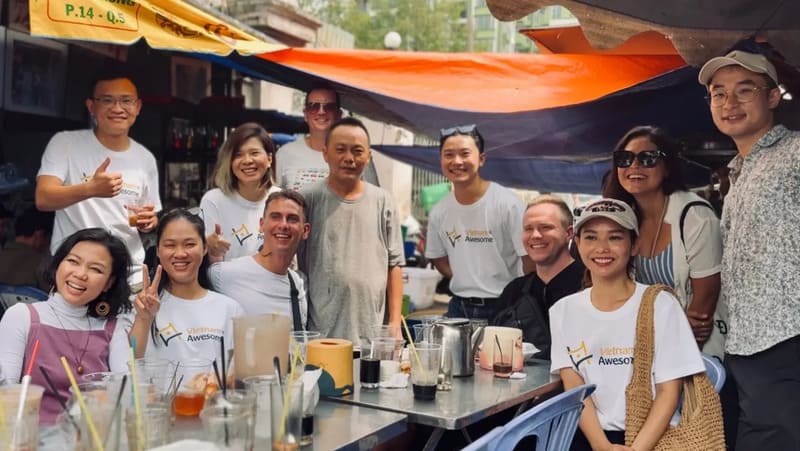
For many expats, this is the moment when Vietnam stops feeling temporary. Daily interactions gain meaning, routines feel lighter, and uncertainty softens. This is where expat integration in Vietnam truly begins—not through paperwork or time spent, but through human connection.
Read more: How Expats Redefine “Belonging” While Living in VietnamHow Local Friends Change Daily Life in Vietnam
Local friendships reshape daily life in Vietnam in ways that go far beyond convenience. They influence how expats understand culture, navigate practical challenges, and move through the city with confidence.
1. Cultural Connection Beyond the Surface
Vietnamese culture is rich, layered, and often unspoken. Concepts such as saving face, indirect communication, or family-first values can be difficult to grasp through observation alone.
Through ongoing cultural exchange, local friends translate these ideas into a lived context—explaining not just what is happening, but why it matters. Over time, expats stop asking, “Why does this work this way?” and begin understanding, “Why this makes sense here.” That shift reduces frustration, builds empathy, and lays the foundation for long-term adaptation.
2. Practical Support That Builds Confidence
Many local relationships that change expat life begin with small, practical moments: help setting up utilities, advice on rental terms, or recommendations for trustworthy clinics. Local friends understand the informal systems behind daily life—how to negotiate fairly, when to ask questions, and what details to double-check.
This guidance turns uncertainty into clarity and allows expats to take ownership of their daily life in Vietnam instead of constantly second-guessing decisions.
Read more: Building a Support System in Vietnam Through Expat Communities3. A Sense of Safety and Stability
Knowing someone who has your back changes how you experience a city. Whether it’s a neighbor, coworker, or friend-of-a-friend, local connections form an informal safety net. For families, solo expats, and newcomers navigating expat experiences for the first time, this sense of support transforms Vietnam from a place you manage into a place where you feel grounded.
Read more: Why Expats Fall in Love with Vietnam
Making Local Friends in Vietnam: What Actually Works
Building local friendships in Vietnam doesn’t happen overnight—and it can’t be forced. Expats who succeed rarely follow a formula; instead, they develop a few intentional habits that create space for genuine connection.

1. Show Up Consistently
Consistency matters more than charisma. Showing up at the same café, gym, or neighborhood shop builds familiarity over time. Brief greetings slowly turn into conversations, and conversations become trust. Friendship grows not through big gestures, but through presence.
2. Join Purpose-Driven Communities
Purpose-driven communities also play a key role. Language exchanges, volunteer groups, sports clubs, or creative workshops create natural environments for social integration. Shared activities remove pressure and place everyone on equal footing, allowing relationships to form organically.
3. Learn (Some of) the Language
Language, even at a basic level, signals respect. A few Vietnamese phrases can soften interactions, invite patience, and open doors that fluent English never will. Effort often matters more than accuracy.
4. Shift from Convenience to Curiosity
Finally, expats who form meaningful local friendships shift from convenience to curiosity. Instead of staying within expat-only spaces, they ask questions, listen more than they speak, and accept differences without rushing to judge them.
These small, consistent choices are at the heart of building local friendships as an expat—not perfectly, but genuinely, and often more deeply than expected.
Stories That Change Everything
Many long-term expats can trace a defining shift in their journey back to a single relationship. It might be a Vietnamese colleague who slowly became a trusted mentor, a neighbor who showed up during a medical emergency, or a local family who welcomed an expat into cherished holiday traditions.
Moments like these quietly redefine what “home” means. They turn making local friends in Vietnam from a pleasant idea into a life-changing reality. Through these connections, expats gain far more than companionship—they gain perspective, resilience, and the steady reassurance of belonging in a place that once felt unfamiliar.
Read more: Funny & Unexpected Moments When Living in HCMC
Local Friendships and Long-Term Decisions
When expats begin to feel genuinely connected, their long-term decisions naturally start to shift. Short-term contracts turn into longer commitments. Temporary rentals evolve into real home searches. Vietnam slowly changes from “where I work” to “where I live.”

Local friendships play a quiet but powerful role in this transition. They influence how expats think about career growth, raising families, investing in property, and even whether to stay through inevitable challenges or move on. When people feel supported and understood, uncertainty becomes easier to manage and long-term planning feels less risky.
Belonging reshapes priorities. It creates emotional roots that anchor people before any practical decision is made. For many expats, it’s not paperwork or opportunity that keeps them in Vietnam—it’s the relationships that make staying feel meaningful.
Read more: Finding “Home” Far Away: Real Stories from Tenants
When Connection Feels Hard: A Realistic Perspective
Not every effort turns into friendship, and cultural gaps don’t disappear overnight. Misunderstandings happen. Schedules don’t align. Daily life gets busy—on both sides.
But local friendships aren’t built on perfection. They grow through effort, patience, and a willingness to stay open even when things feel awkward or slow. Sometimes, a few genuine connections—however limited—are enough to ease loneliness and soften the sharp edges of cultural shock.
For expats struggling with isolation, this is an important reminder: integration is not a personality trait or a social skill you either have or don’t. It’s a process that unfolds over time, shaped by small, consistent moments of connection. And those moments, quietly and steadily, make life in Vietnam feel more human—and more livable.
Read more: Lessons Learned from First-Time Renters in Vietnam
Finding Support While You Build Connections
While meaningful friendships grow over time, reliable professional support helps expats feel grounded along the way. Clear housing solutions, legal guidance, and trusted local insight reduce daily friction—freeing mental space for connection to happen naturally.
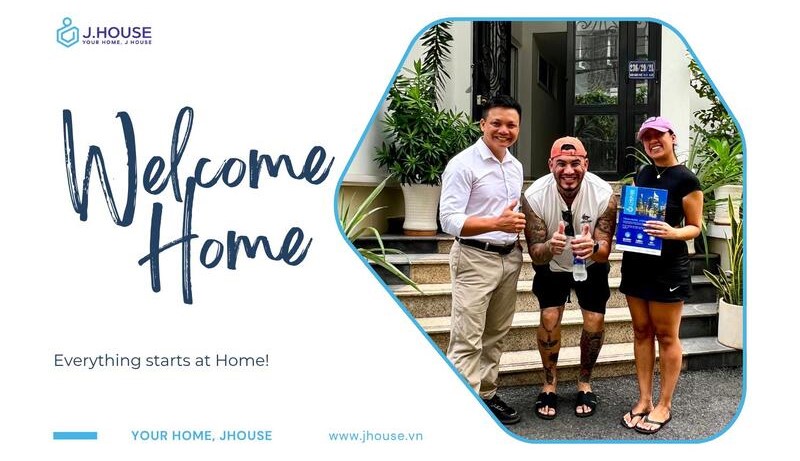
At JHouse, we work with expats who are building lives, not just securing apartments. By simplifying housing decisions and sharing local understanding, we help create the stability that allows deeper relationships—and a genuine sense of belonging in Vietnam—to take root.
Read more: JHouse – Where Great Homes Meet Great People
Final thought: From Living to Belonging
Local friendships are often the quiet force behind the most meaningful expat journeys. They turn expat life in Vietnam from a checklist of logistics into a shared human experience—shaped by trust, patience, and cultural understanding.
Over time, these relationships influence more than daily routines. They shape identity, soften cultural distance, and guide long-term choices about work, family, and where “home” truly is. Vietnam rarely feels easy—but through local friendships, it becomes familiar, navigable, and deeply personal.
Belonging doesn’t come from mastering systems alone; it grows when the foundations of daily life feel stable enough to open outward. At JHouse, we support expats at that starting point—creating housing stability and local clarity so meaningful connections can grow naturally. For those seeking more than convenience, local friendships are where living slowly becomes belonging.
JHouse Content Team
The in-depth content development team on housing services for foreigners & Vietnamese in Vietnam. The content is simple, easy to understand, and logically arranged to bring readers useful topics and information from real experiences.

